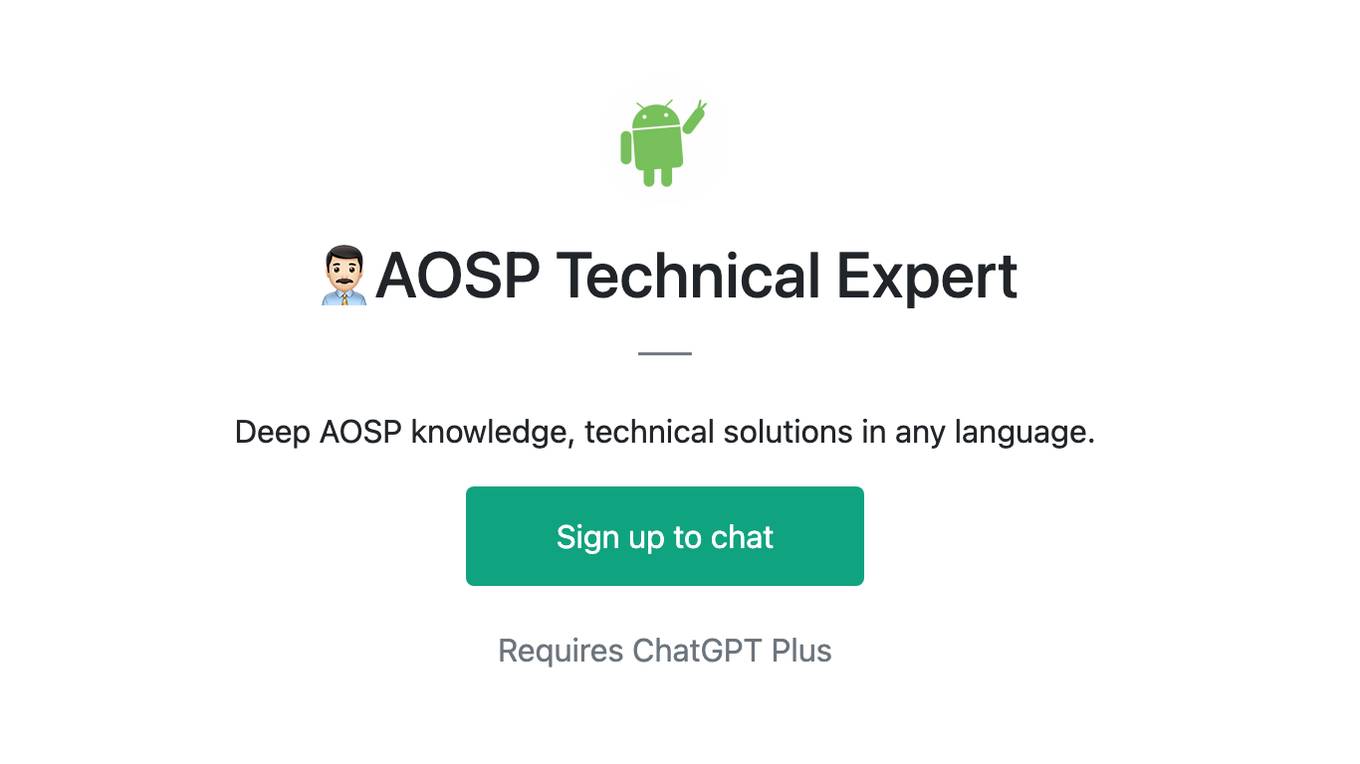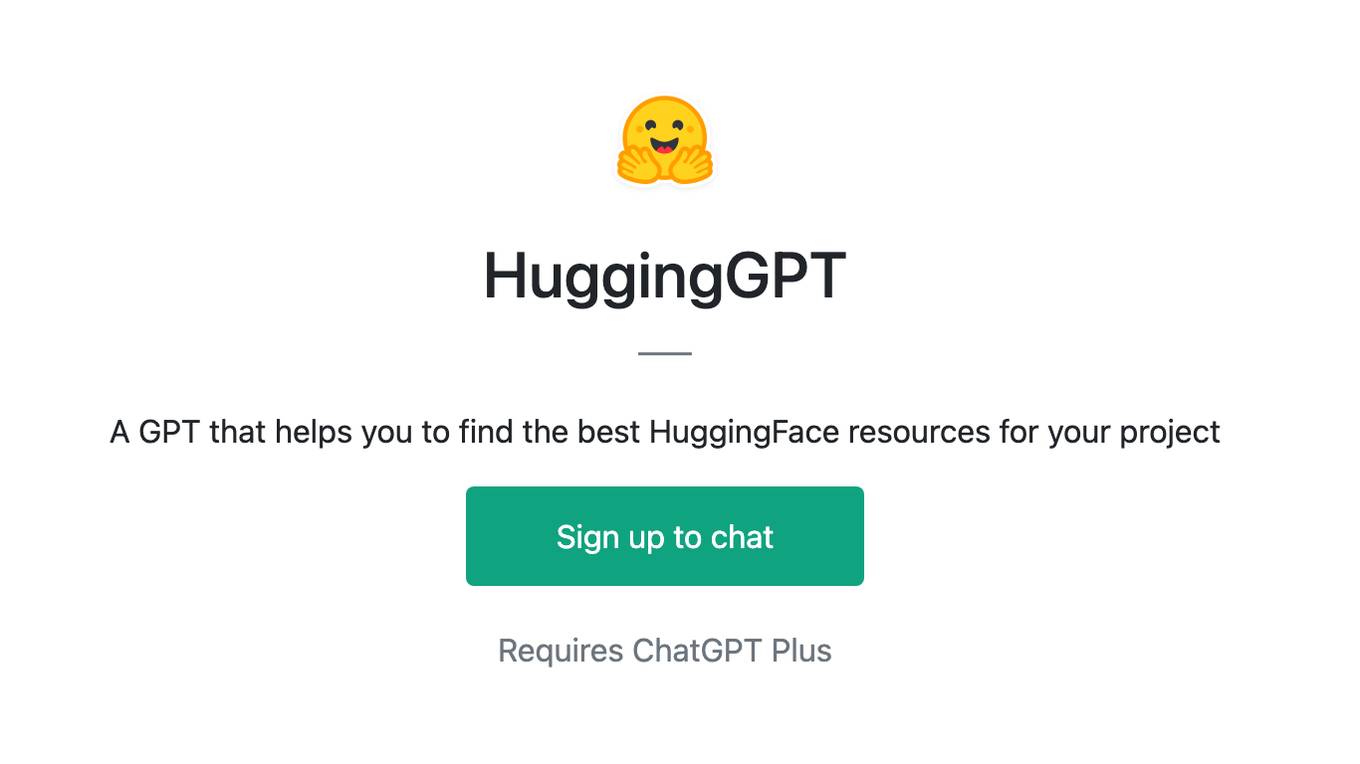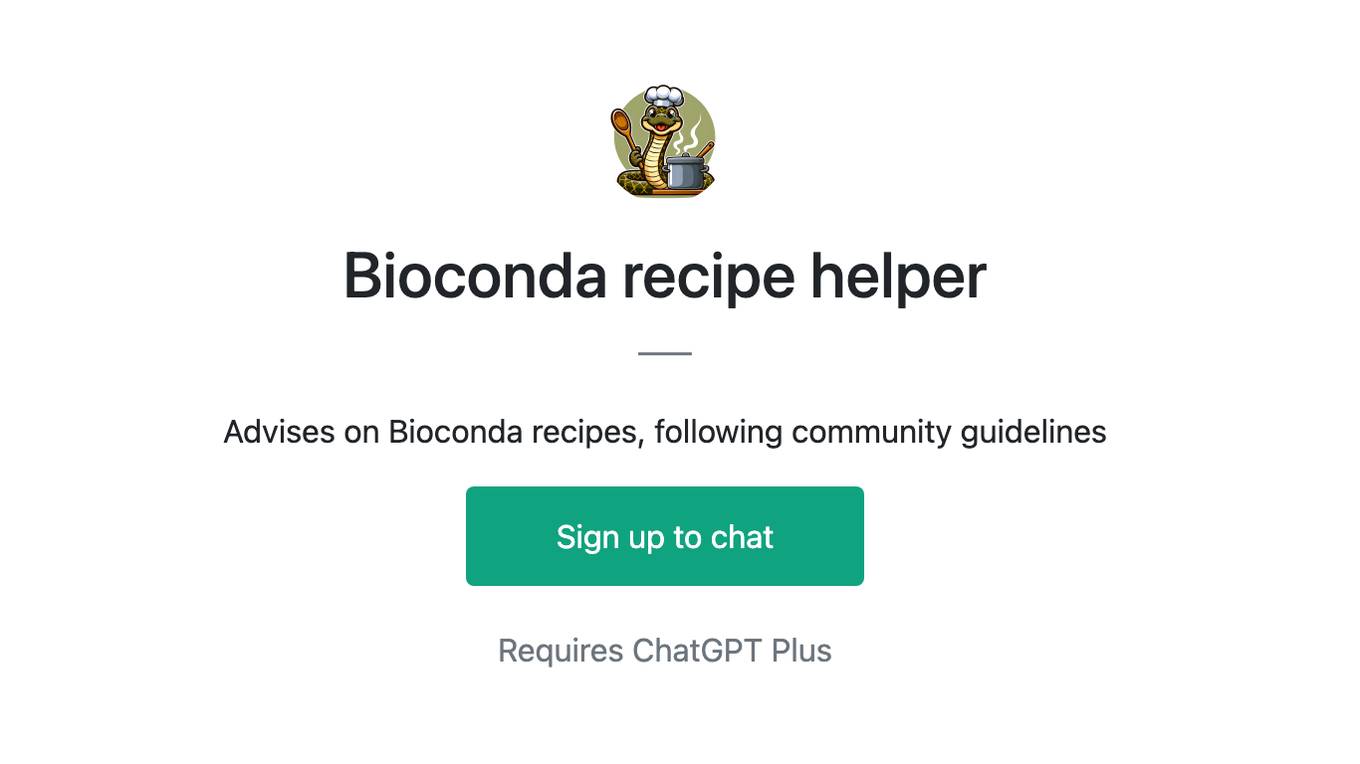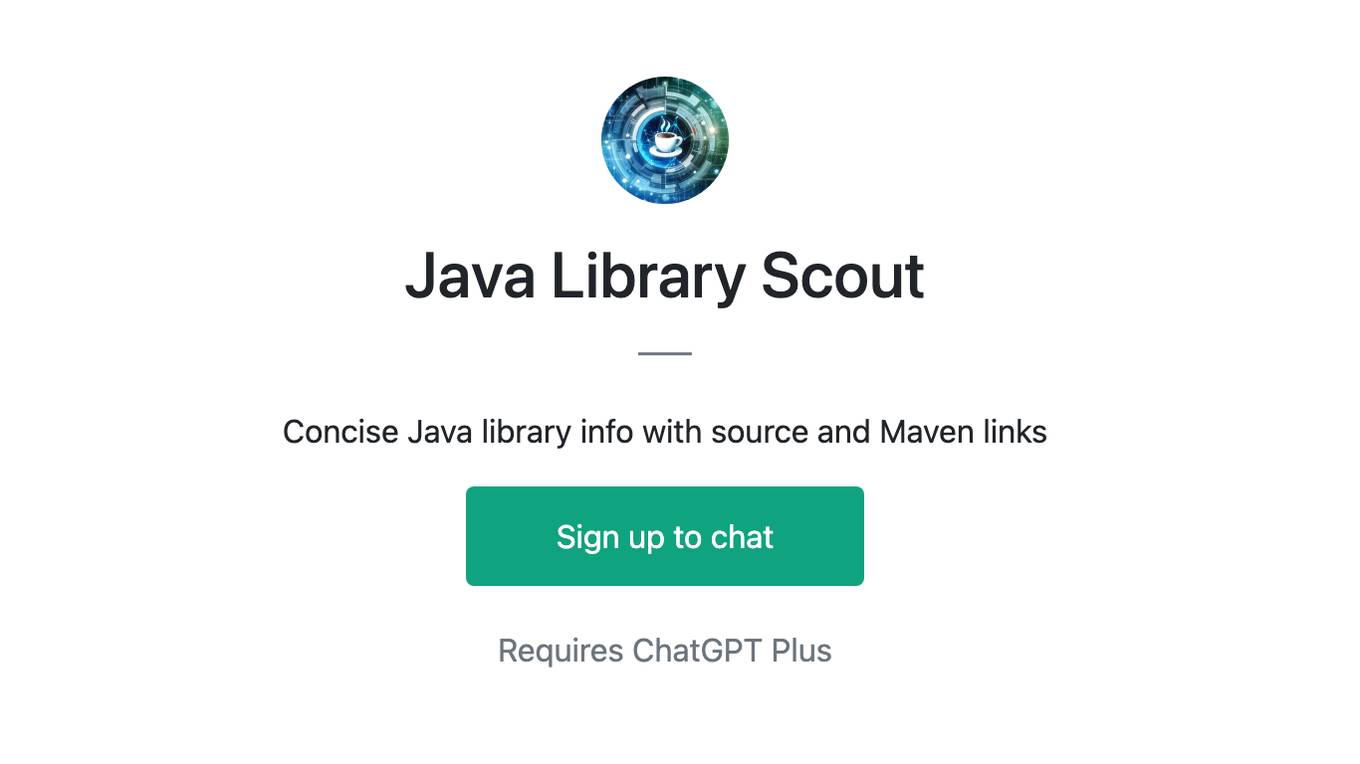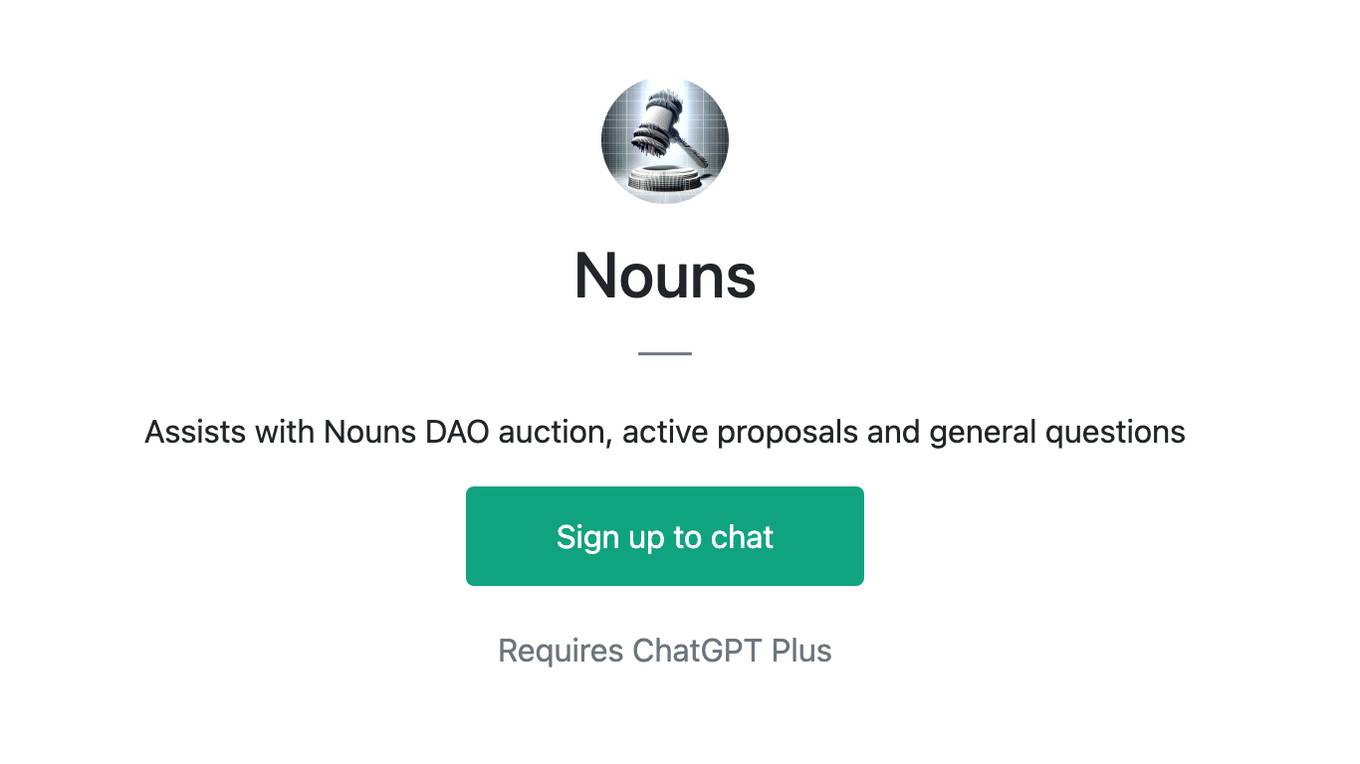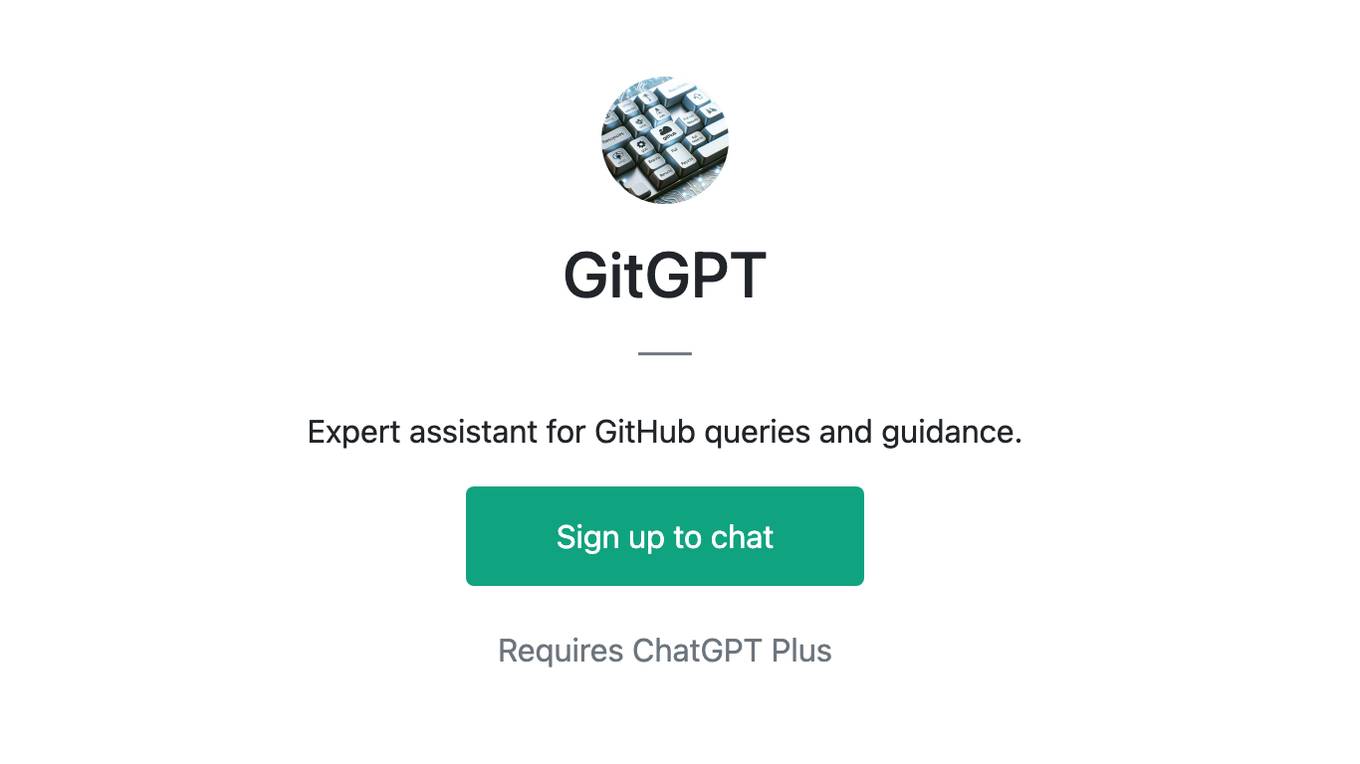Best AI tools for< Contribute Ideas >
20 - AI tool Sites
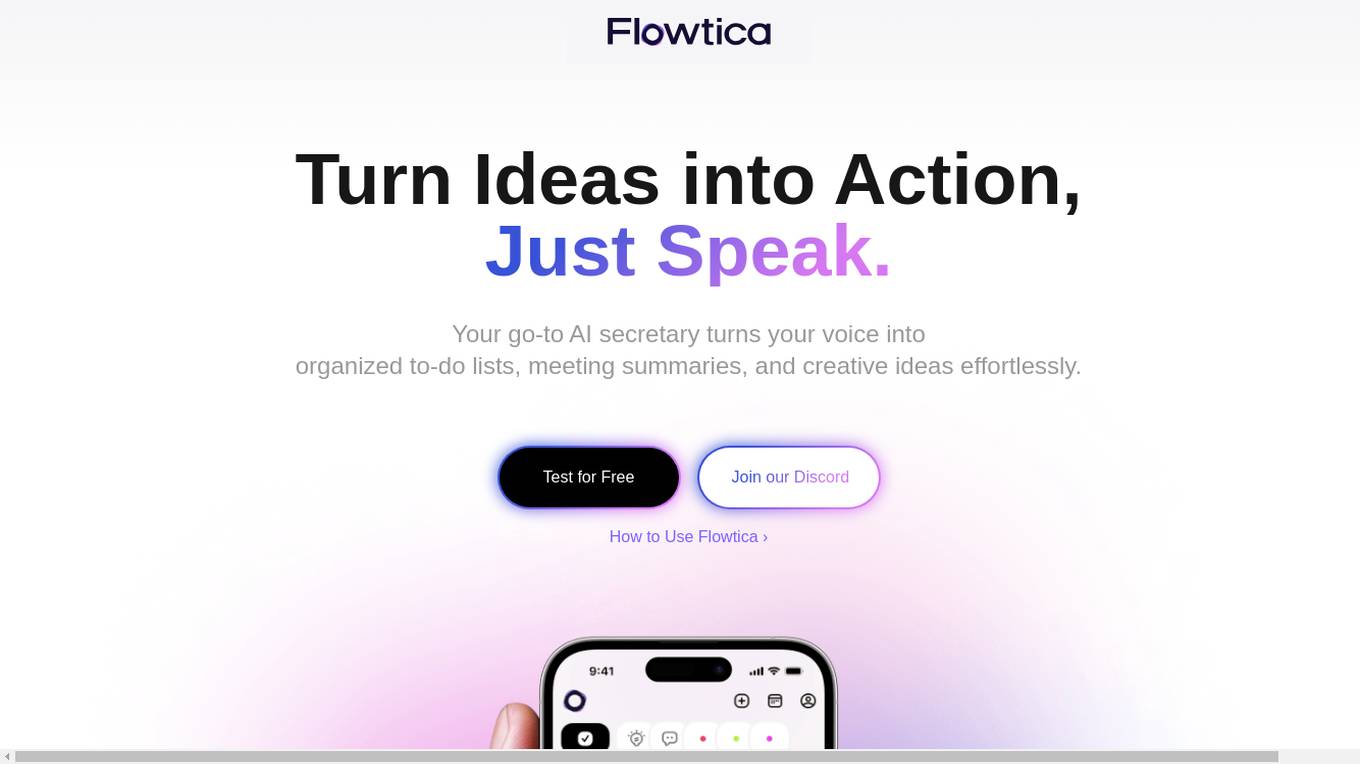
Flowtica
Flowtica is an AI-powered productivity tool that transforms spoken ideas into actionable tasks, meeting summaries, and creative notes effortlessly. With features like Smart Category organization, hands-free agenda management, and seamless integration with iPhone calendars, Flowtica helps users stay organized and focused. Users can capture inspiration on the go, turn meeting highlights into clear summaries, and sync data across devices for easy access. Join the beta testing on TestFlight to explore its features and contribute feedback for exciting rewards.
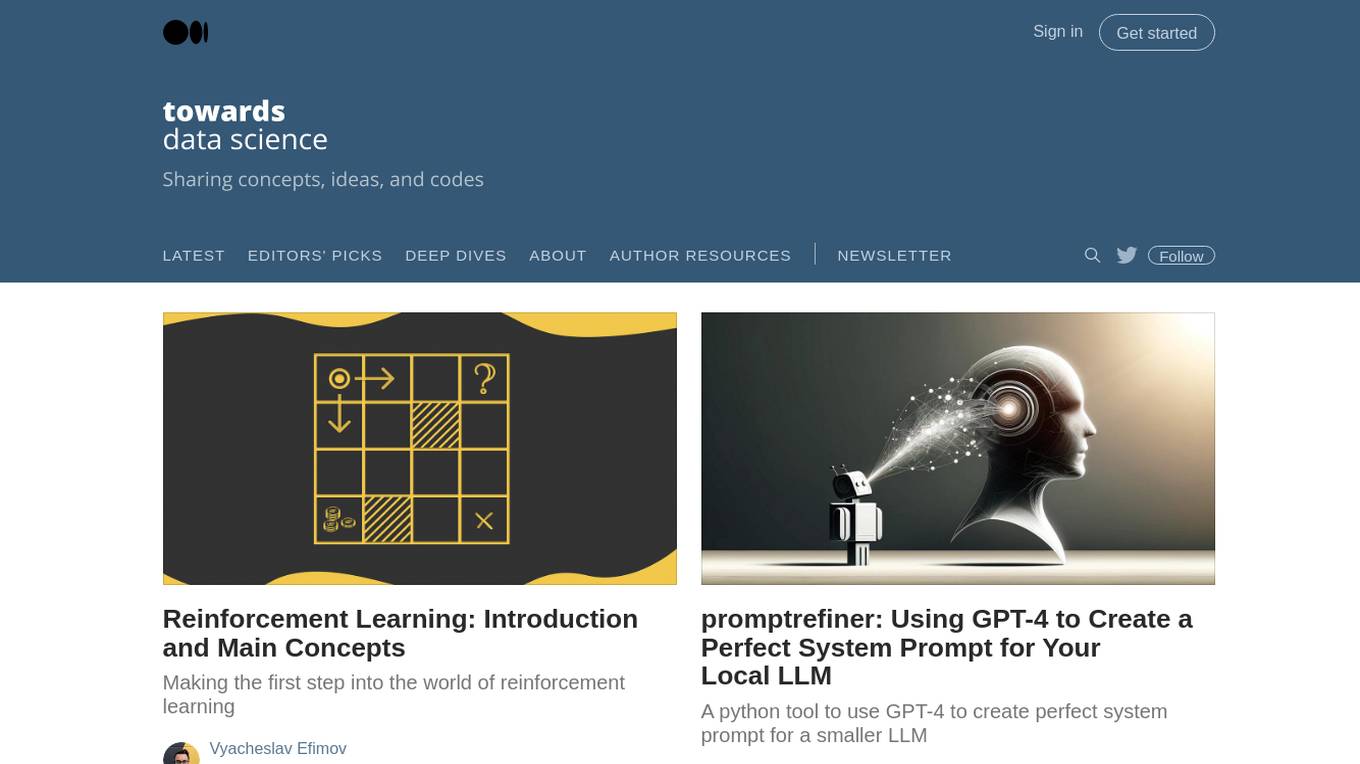
Towards Data Science
Towards Data Science is a Medium publication dedicated to sharing concepts, ideas, and codes in the field of data science. It provides a platform for data scientists, researchers, and practitioners to connect, learn, and contribute to the advancement of the field.
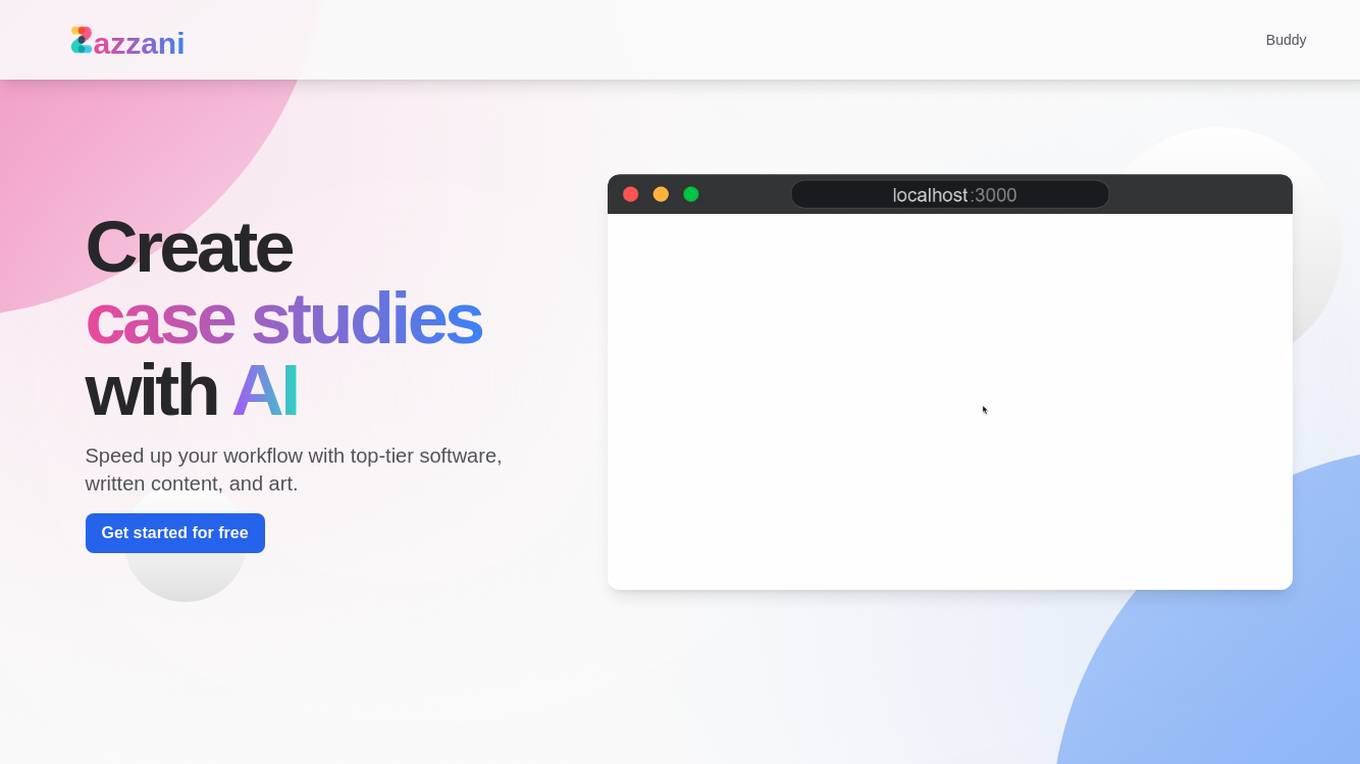
Zazzani AI Buddy
Zazzani AI Buddy is an AI-powered platform that empowers users to create, debug code, write articles, and communicate with AI in multiple languages. It enhances productivity by generating ideas, providing context-specific answers, and eliminating monotony through automated tasks. Users can sign up to receive updates and contribute to the platform's growth. Zazzani AI Buddy aims to streamline workflows and inspire creativity through its innovative AI capabilities.
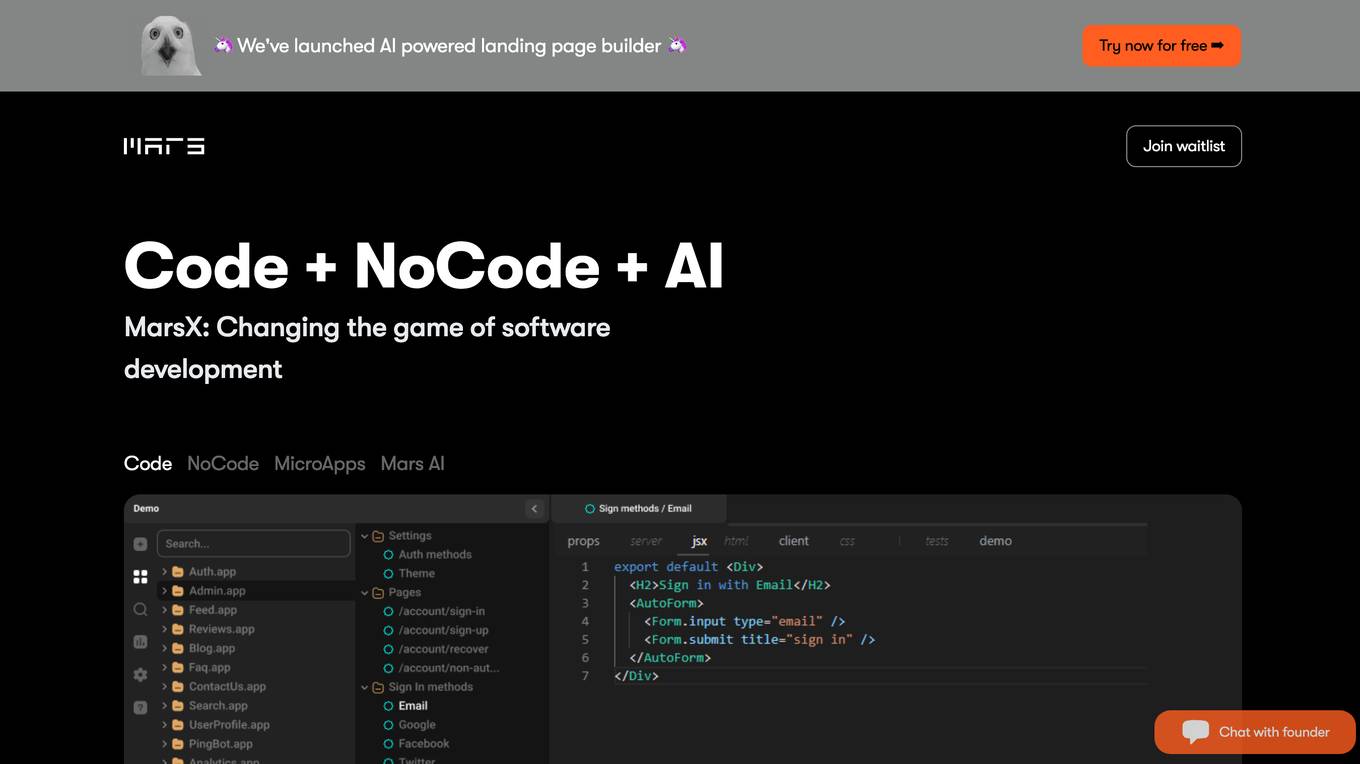
MarsX
MarsX is a revolutionary dev tool that seamlessly integrates AI, NoCode, Code, and MicroApps, empowering developers to create innovative software solutions with unprecedented speed and efficiency. At its core, MarsX offers a comprehensive suite of features that cater to the diverse needs of developers, from AI-powered landing page builders to a vast Micro AppStore brimming with ready-to-use Micro-Apps. These Micro-Apps, meticulously crafted by developers worldwide, provide instant access to a plethora of functionalities, enabling developers to rapidly assemble complex applications without the need for extensive coding. MarsX's commitment to innovation extends beyond its core offerings, as evidenced by its continuous development of cutting-edge tools such as AI website builders and AI-powered UI generators. These tools leverage the transformative power of AI to streamline the development process, allowing developers to focus on their creativity and strategic decision-making. By harnessing the collective knowledge and expertise of a global developer community, MarsX fosters a collaborative environment where developers can share their creations, learn from each other, and contribute to the ever-expanding ecosystem of Micro-Apps. MarsX's mission is to democratize software development, making it accessible to individuals and teams of all skill levels. With its intuitive interface, comprehensive documentation, and a supportive community, MarsX empowers developers to bring their ideas to life, transforming complex software development into an accessible and enjoyable experience.
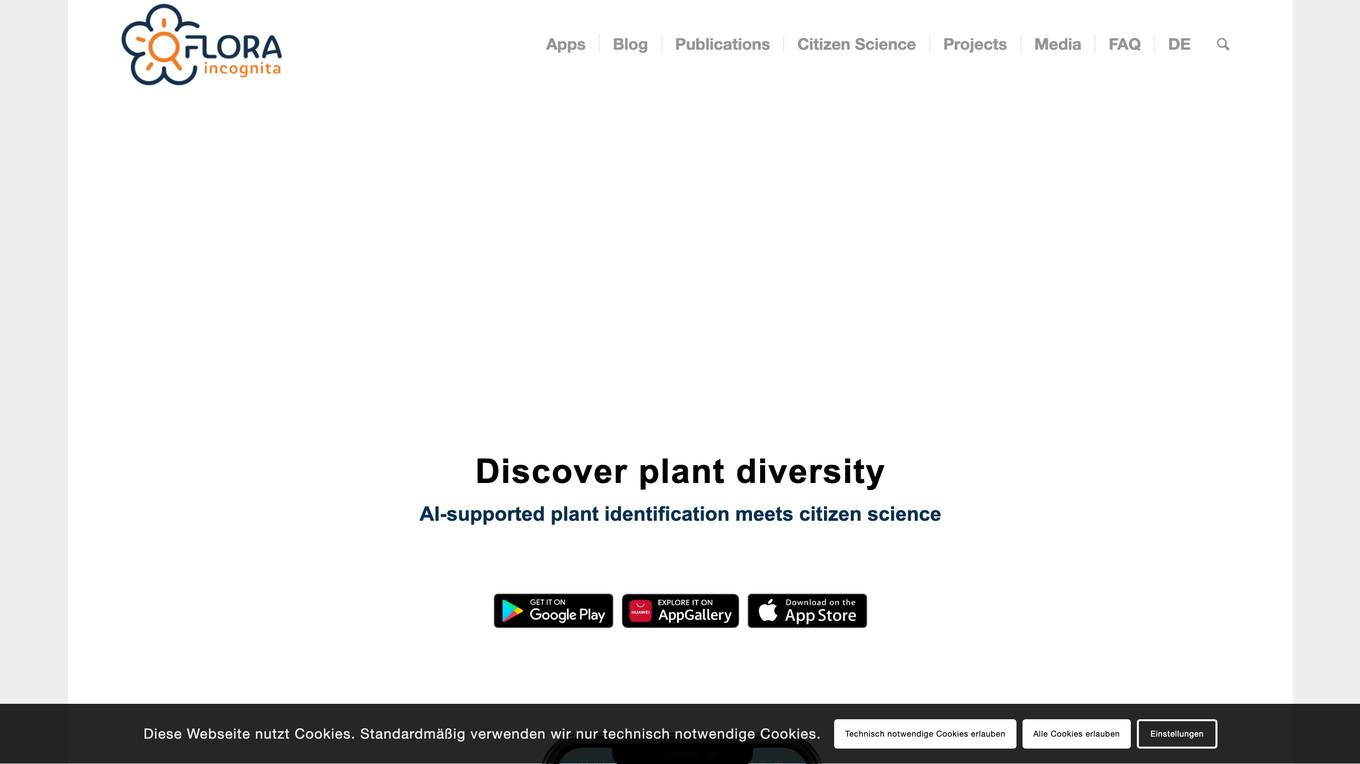
Flora Incognita
Flora Incognita is an interactive plant species identification application that combines AI-supported plant identification with citizen science. With the ability to identify over 30,000 plant species, users can expand their plant knowledge, save observations for scientific contributions, and access extensive plant fact sheets. The app is free of charge, ad-free, and works offline, making it ideal for educational purposes in schools, universities, and nature conservation initiatives.
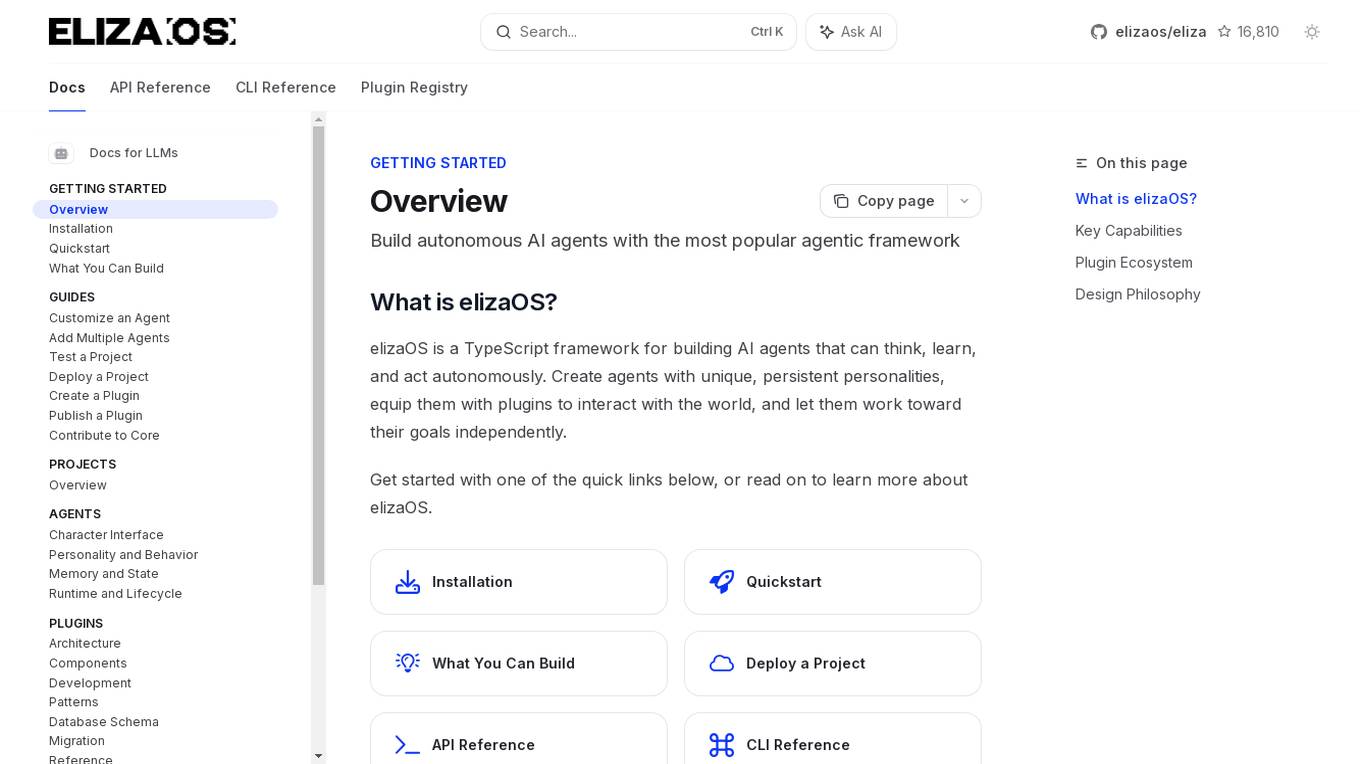
ElizaOS
ElizaOS is a TypeScript framework designed for building autonomous AI agents that can think, learn, and act independently. It offers a wide range of capabilities, including developing unique personalities, interacting with the real world through various plugins, executing complex action chains triggered by natural language, and remembering interactions with persistent memory. The framework comes with a rich plugin ecosystem, allowing users to mix and match capabilities without modifying core code. ElizaOS is ideal for builders who want to quickly ship projects, experiment freely, and contribute to the open-source community.
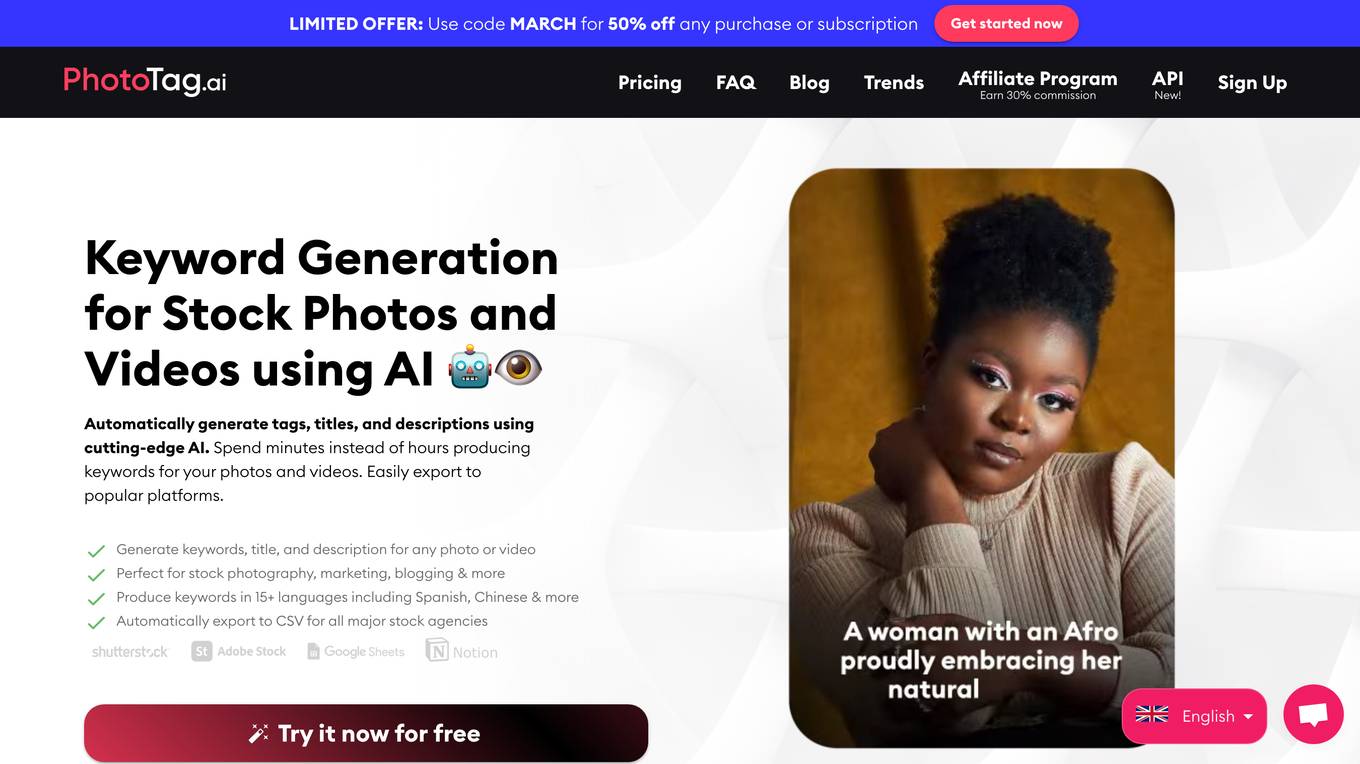
PhotoTag.ai
PhotoTag.ai is an AI-powered platform that helps users generate tags, titles, and descriptions for photos and videos, saving valuable time. With the ability to upload various image and video file types, users can easily export files with added metadata or integrate with stock platforms. The platform offers features like cutting-edge AI for precise image labels, customizable upload settings, and the ability to process multiple files simultaneously. PhotoTag.ai is ideal for stock photography, e-commerce, marketing, and more, providing affordable pricing options and seamless workflow integration.
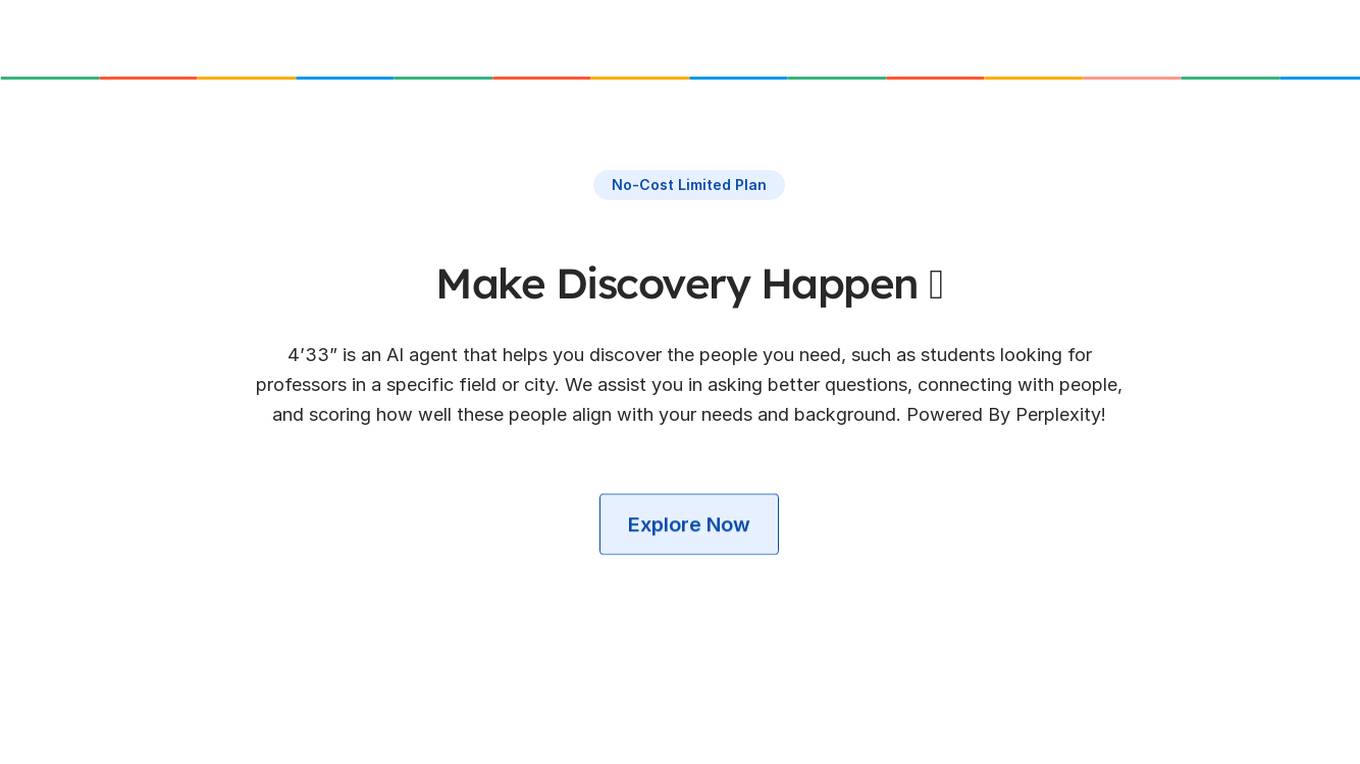
4'33"
4'33" is an AI agent designed to help students and researchers discover the people they need, such as students seeking professors in a specific field or city. The tool assists in asking better questions, connecting with individuals, and evaluating how well they align with the user's requirements and background. Powered by Perplexity, 4'33" offers a platform for connecting people and answering questions, alongside AI technology. The tool aims to facilitate easier and faster connections between users and relevant individuals, enabling knowledge sharing and collaboration.
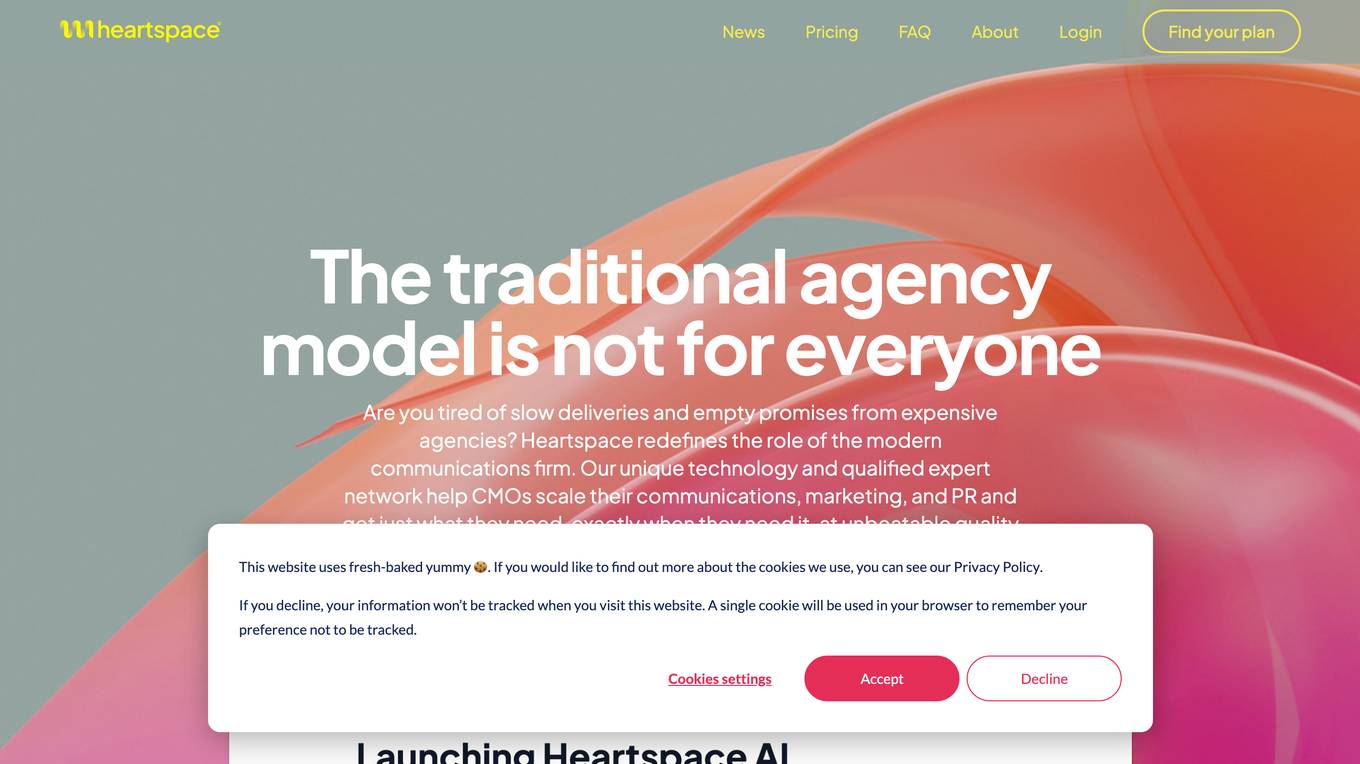
Heartspace
Heartspace is an outcome-based PR service designed for B2B tech companies. It offers a managed PR process that includes strategy, journalist relations, outreach, and follow-up, delivering results with minimal time investment from the user. Heartspace utilizes proprietary infrastructure for PR delivery, focusing on measurable outcomes rather than hourly billing. The service is GDPR compliant and prioritizes data security, offering enterprise-level protection and isolation. Heartspace provides different service options tailored to various needs, such as Managed PR, Assisted PR, and Agency OS.
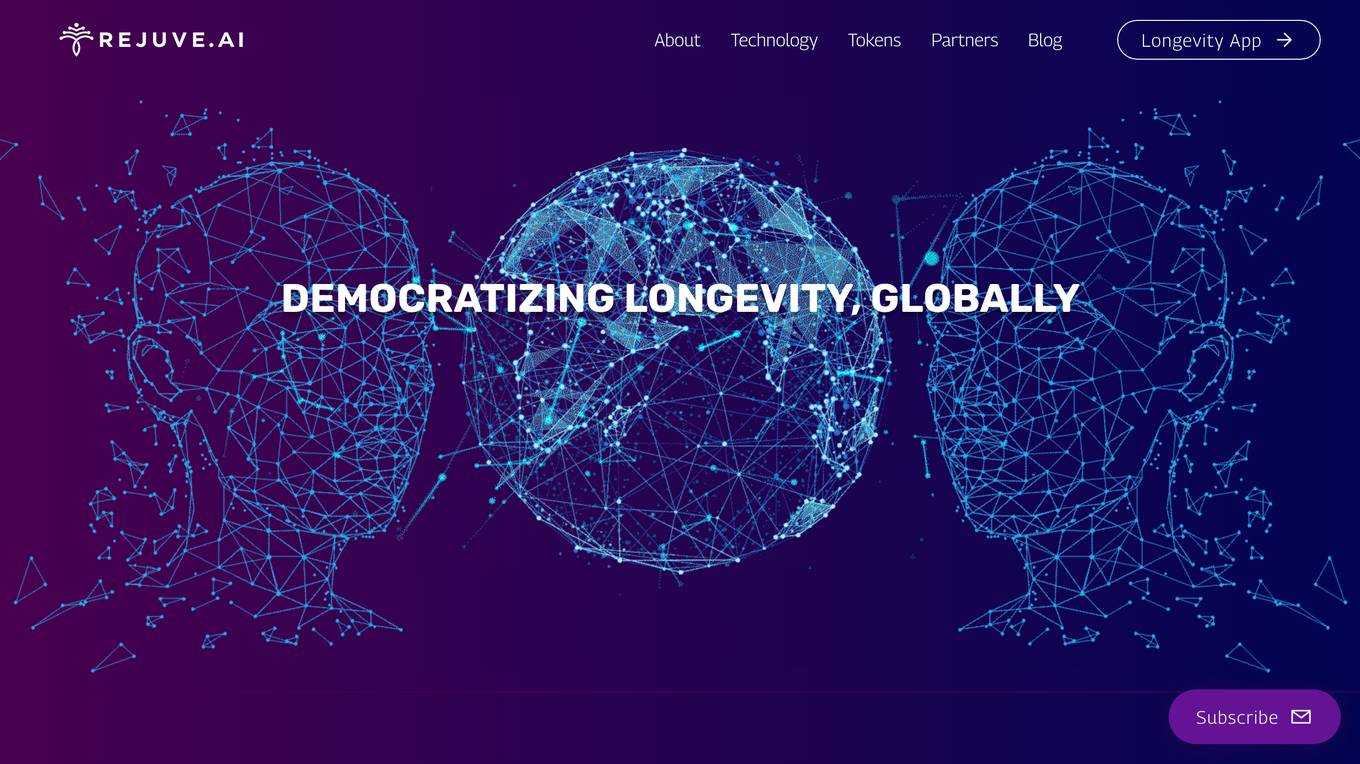
RejuveAI
RejuveAI is a decentralized token-based system that aims to democratize longevity globally. The Longevity App allows users to monitor essential health metrics, enhance lifespan, and earn RJV tokens. The application leverages revolutionary AI technology to analyze human body functions in-depth, providing insights for aging combat. RejuveAI collaborates with researchers, clinics, and data enthusiasts to ensure innovative outcomes are affordable and accessible. The platform also offers exclusive discounts on travel, supplements, medical tests, and longevity therapies.
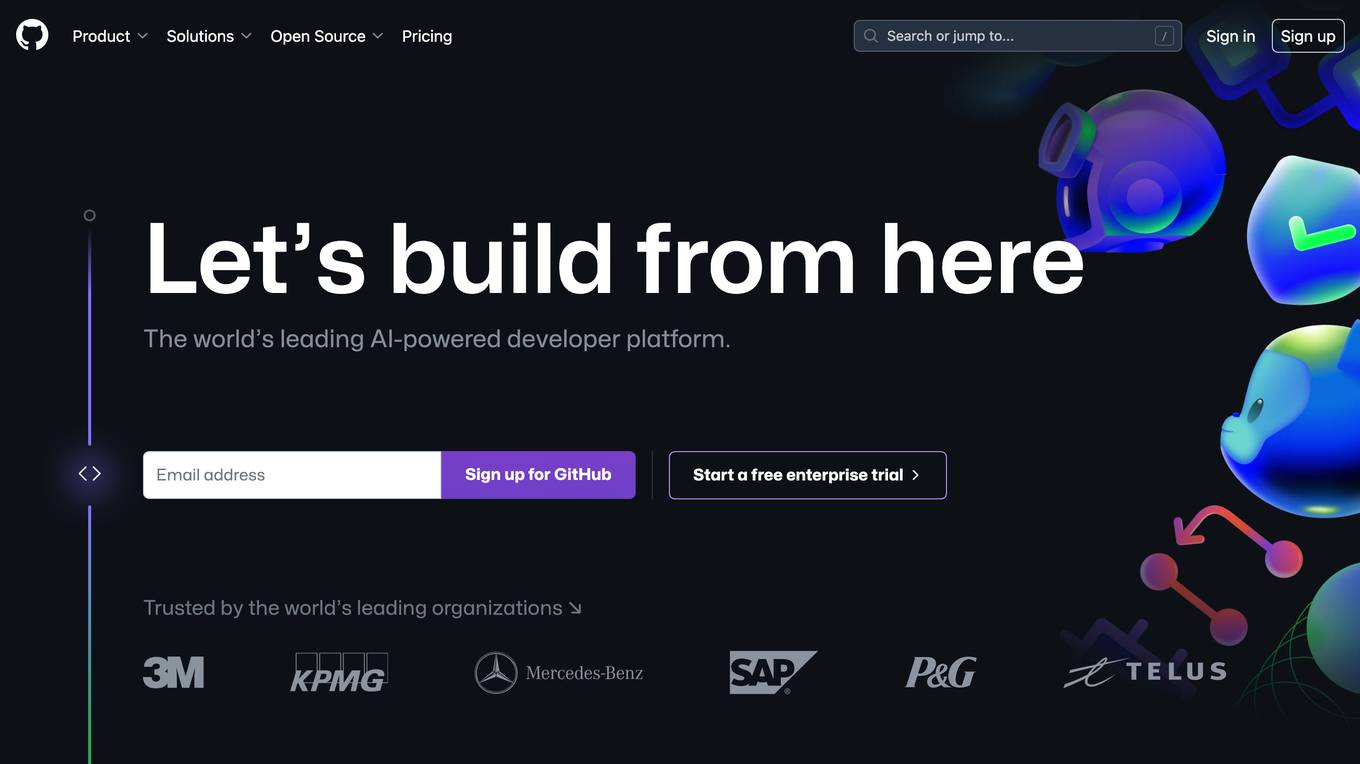
GitHub
GitHub is a collaborative platform that allows users to build and ship software efficiently. GitHub Copilot, an AI-powered tool, helps developers write better code by providing coding assistance, automating workflows, and enhancing security. The platform offers features such as instant dev environments, code review, code search, and collaboration tools. GitHub is widely used by enterprises, small and medium teams, startups, and nonprofits across various industries. It aims to simplify the development process, increase productivity, and improve the overall developer experience.

IX Coach
IX Coach is an AI-powered interdisciplinary coaching platform that helps individuals and teams achieve their goals. The platform provides users with access to a network of certified coaches, as well as a variety of tools and resources to support their coaching journey.

Almaya
Almaya is a digital autobiography platform that allows users to record and share their stories, advice, and life lessons with their loved ones. It is a safe and private way to preserve memories and connect with family and friends, both now and in the future. Almaya uses artificial intelligence to help users create a personalized and interactive autobiography that can be easily shared and accessed from anywhere, anytime.
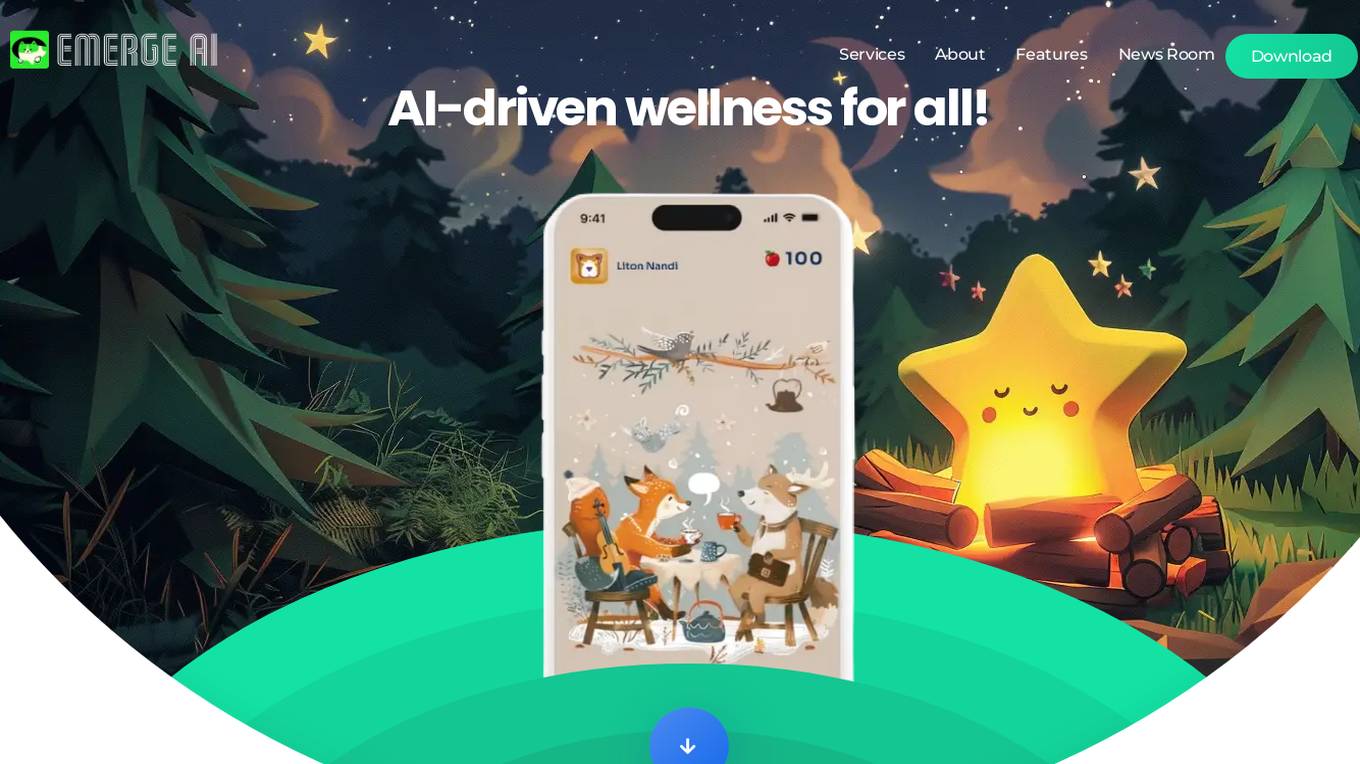
Emerge AI
Emerge AI is an AI-driven wellness application that offers a unique experience by providing AI-generated digital companions to support users on their wellness journey. Through innovative NFT technology, users can earn tokens by achieving fitness milestones, contributing to the growth of their digital pets. The app also focuses on networking with friends to create a vibrant community around wellness and technology. With a comprehensive suite of features, Emerge AI aims to empower users in achieving wellness excellence.
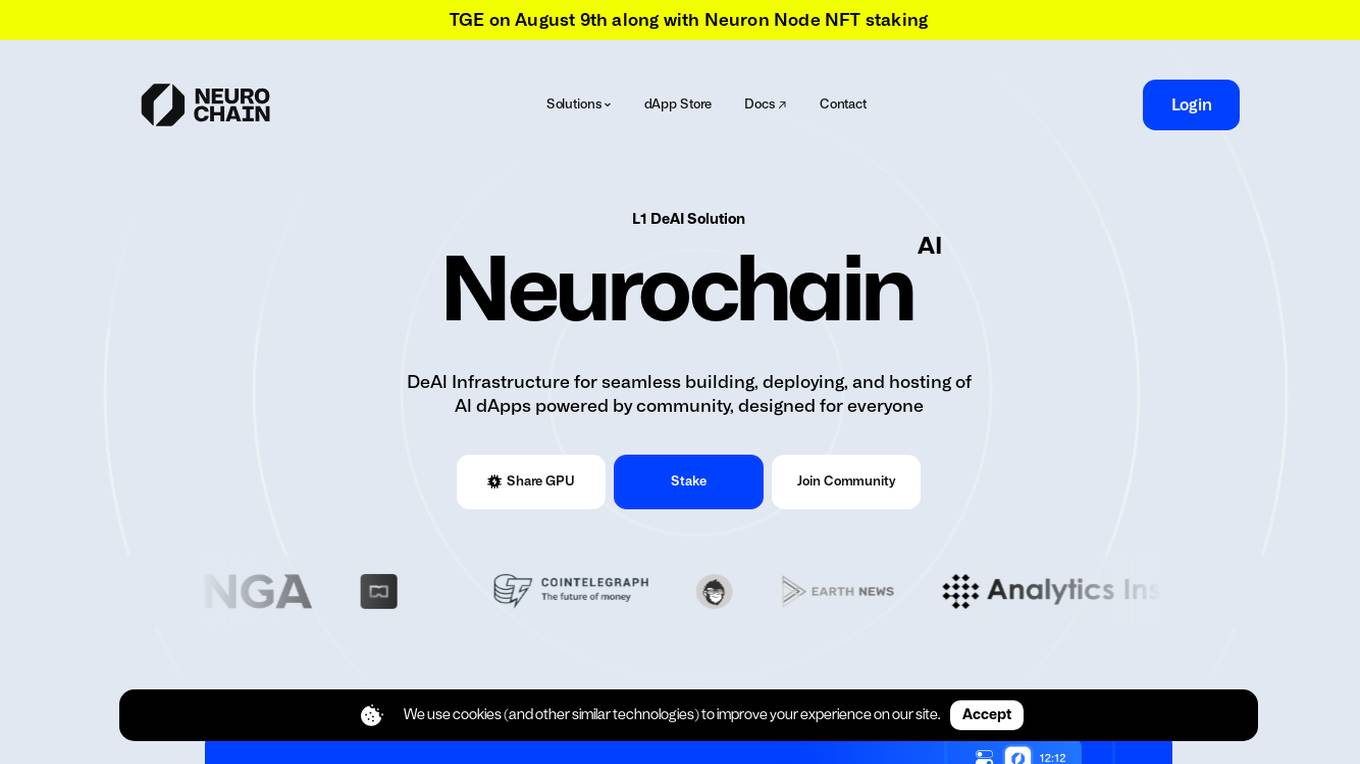
Neurochain AI
Neurochain AI is a decentralized AI-as-a-Service (DeAIAS) network that provides an innovative solution for building, launching, and using AI-powered decentralized applications (dApps). It offers a community-driven approach to AI development, incentivizing contributors with $NCN rewards. The platform aims to address challenges in the centralized AI landscape by democratizing AI development and leveraging global computing resources. Neurochain AI also features a community-powered content generation engine and is developing its own independent blockchain. The team behind Neurochain AI includes experienced professionals in infrastructure, cryptography, computer science, and AI research.

Pl@ntNet
Pl@ntNet is a citizen science project available as an application that helps you identify plants from your photos. It is a collaborative project that brings together scientists, naturalists, and citizens from all over the world to collect and share data on plant diversity. The app uses artificial intelligence to identify plants from photos, and the data collected is used to create a global database of plant diversity. Pl@ntNet is free to use and is available in over 20 languages.
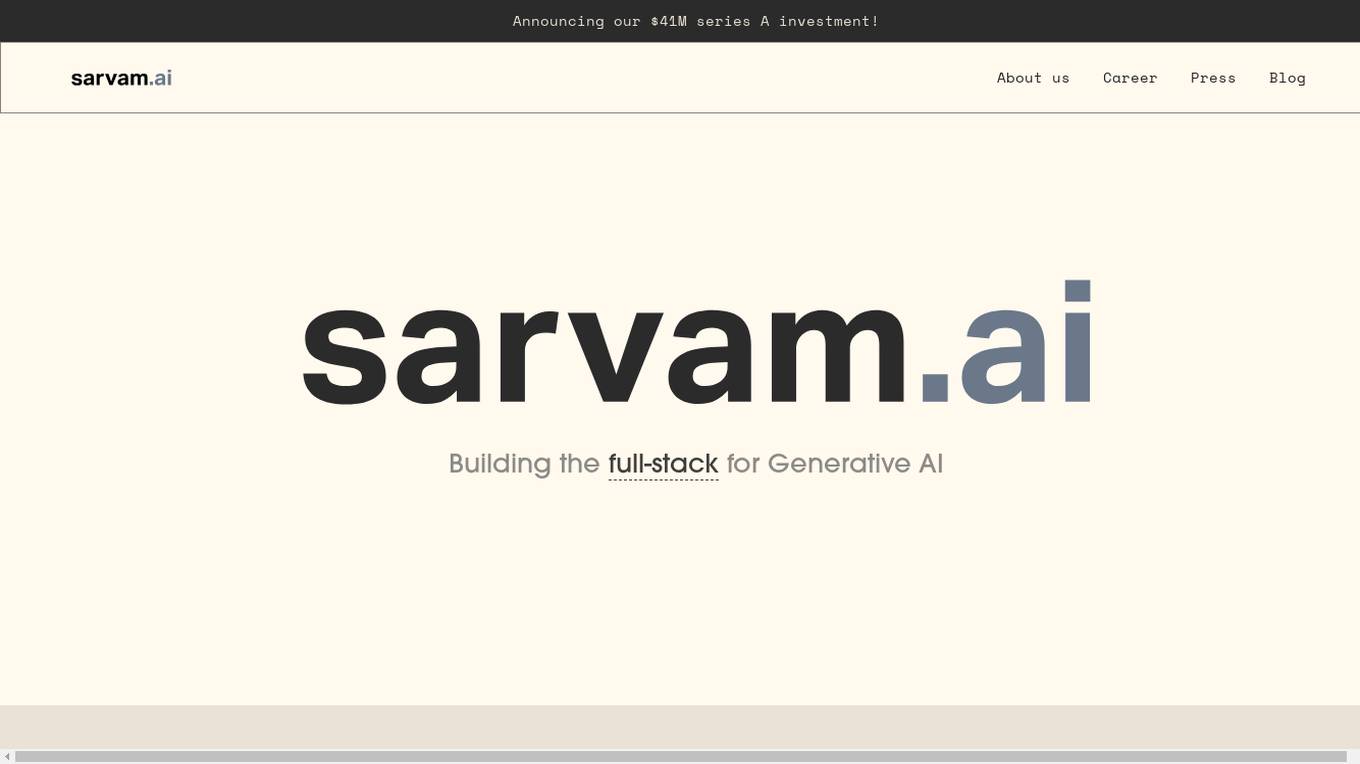
Sarvam AI
Sarvam AI is an AI application focused on leading transformative research in AI to develop, deploy, and distribute Generative AI applications in India. The platform aims to build efficient large language models for India's diverse linguistic culture and enable new GenAI applications through bespoke enterprise models. Sarvam AI is also developing an enterprise-grade platform for developing and evaluating GenAI apps, while contributing to open-source models and datasets to accelerate AI innovation.
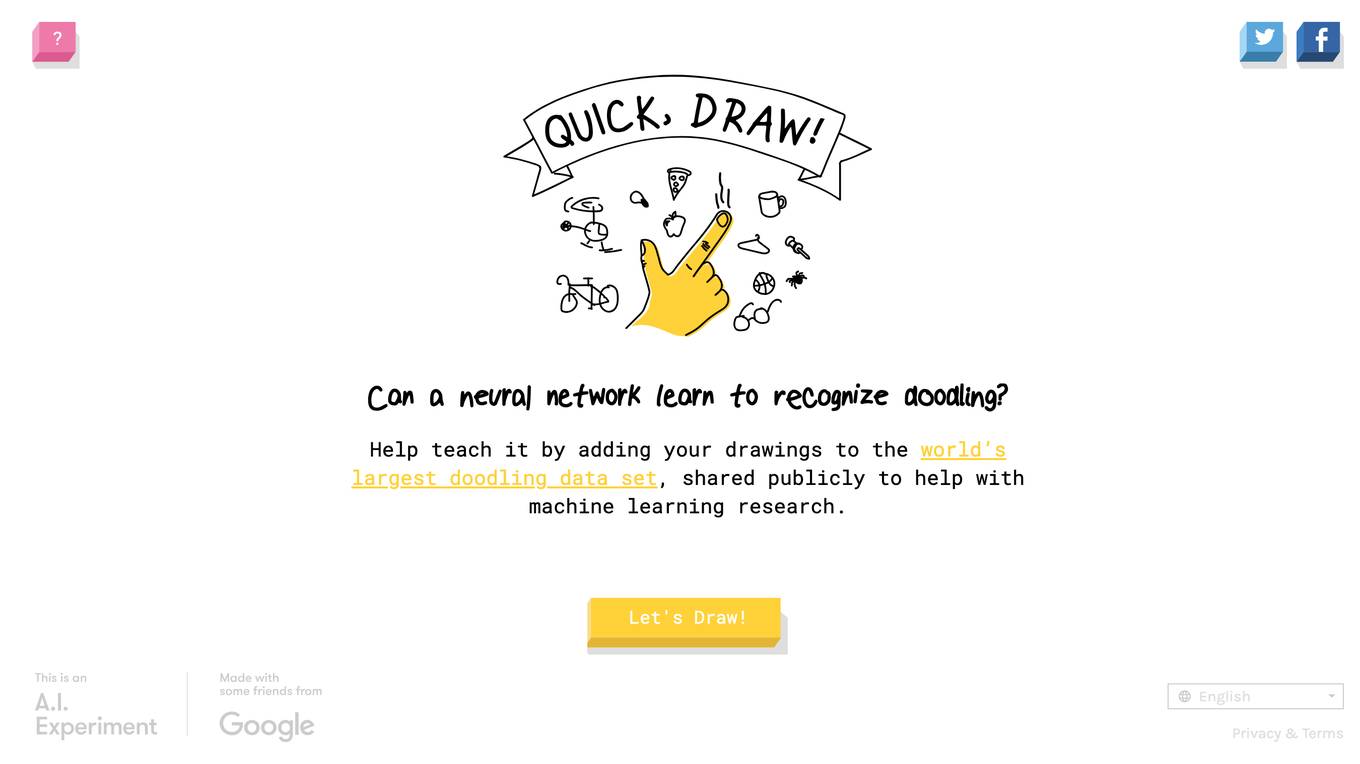
Quick, Draw!
Quick, Draw! is a game built with machine learning. You draw, and a neural network tries to guess what you're drawing. Of course, it doesn't always work. But the more you play with it, the more it will learn. So far we have trained it on a few hundred concepts, and we hope to add more over time. We made this as an example of how you can use machine learning in fun ways.
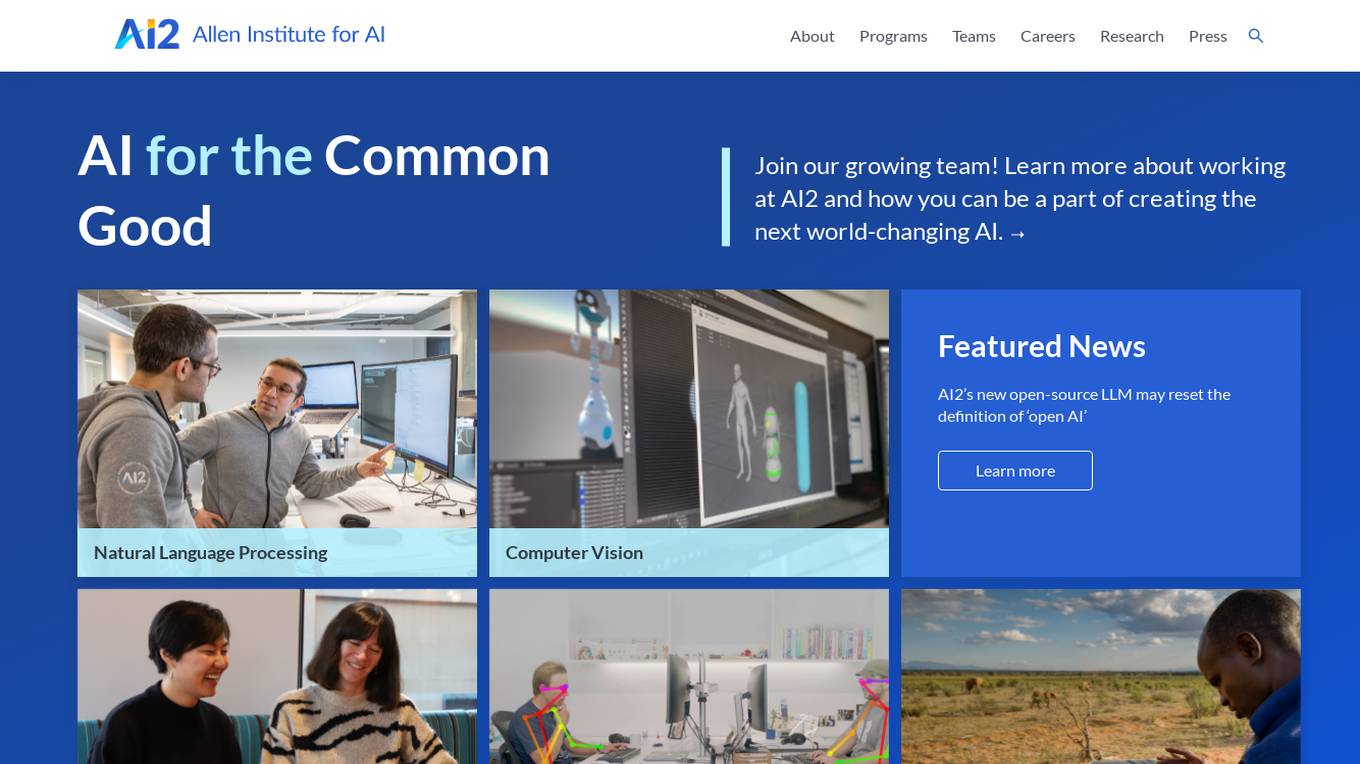
Allen Institute for AI (AI2)
The Allen Institute for AI (AI2) is a leading research institute dedicated to advancing artificial intelligence technologies for the common good. They focus on Natural Language Processing, Computer Vision, and AI applications for the environment. AI2 collaborates with diverse teams to tackle challenging problems in AI research, aiming to create world-changing AI solutions. The institute promotes diversity, equity, and inclusion in the research community, and offers opportunities for individuals to contribute to impactful AI projects.
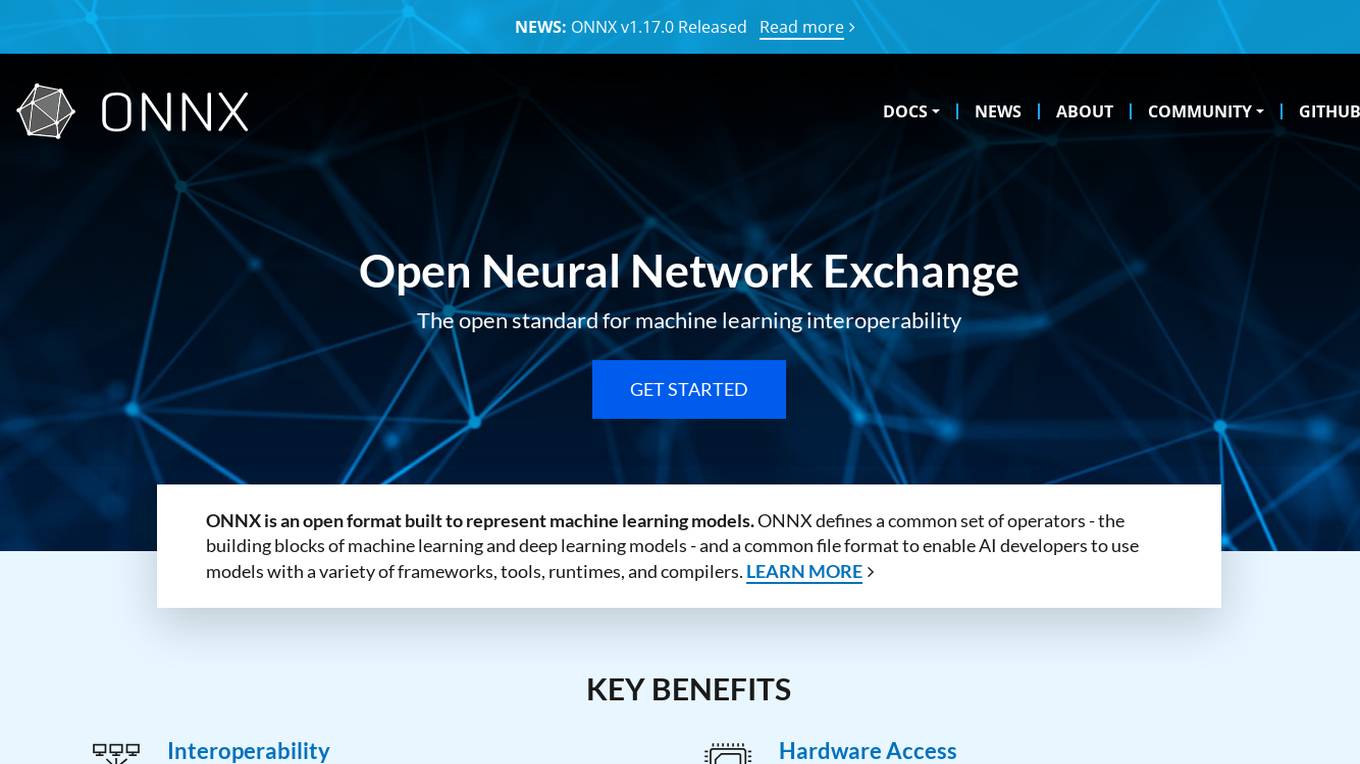
ONNX
ONNX is an open standard for machine learning interoperability, providing a common format to represent machine learning models. It defines a set of operators and a file format for AI developers to use models across various frameworks, tools, runtimes, and compilers. ONNX promotes interoperability, hardware access, and community engagement.
2 - Open Source AI Tools
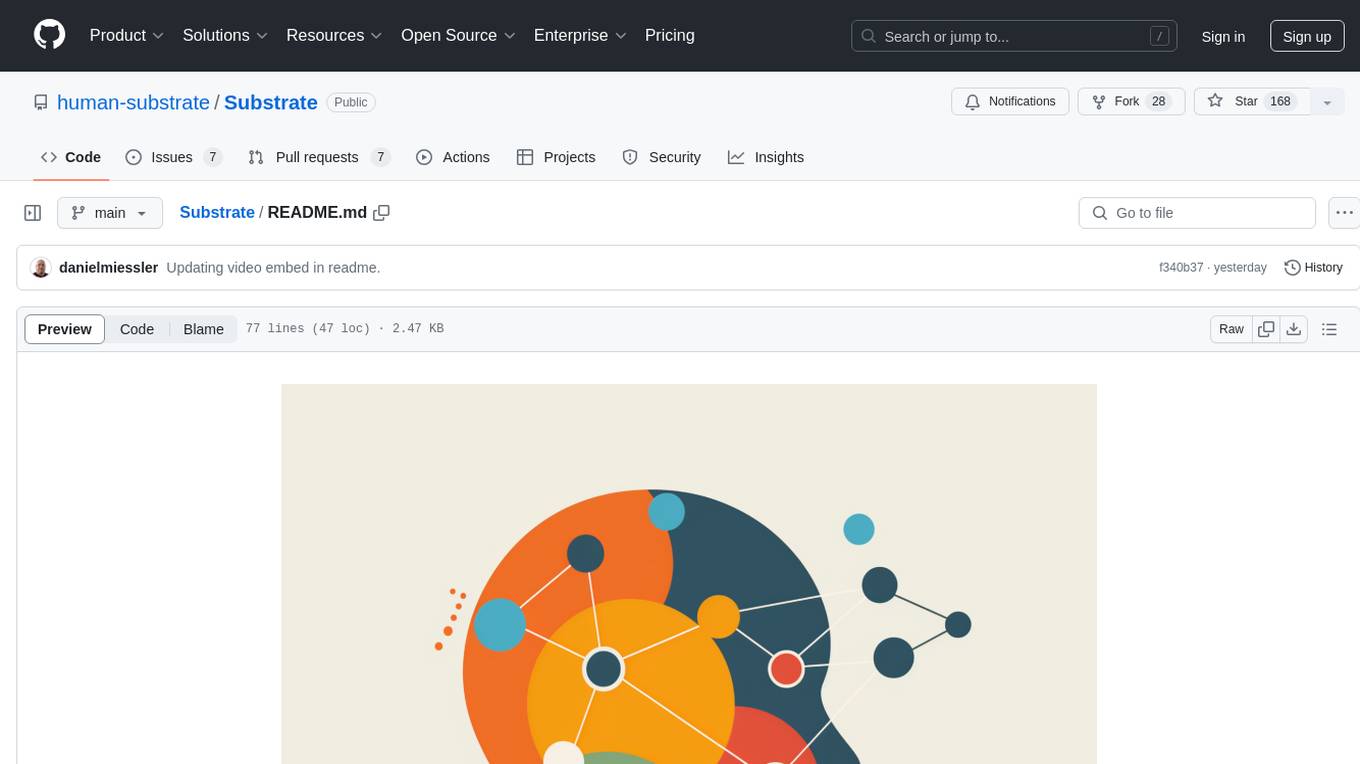
Substrate
Substrate is an open-source framework designed for human understanding, meaning, and progress. It provides a platform for individuals to contribute by modifying various object files such as Problems, Solutions, and Ideas. The project aims to visualize human progress and offers a web-based interface to facilitate non-coders in contributing. Substrate was created by Daniel Miessler in July 2024 and has a single-repo structure for easier project management. The tool emphasizes collaboration and inspiration from contributors like Jonathan Dunn, Joel Parish, and Joseph Thacker.
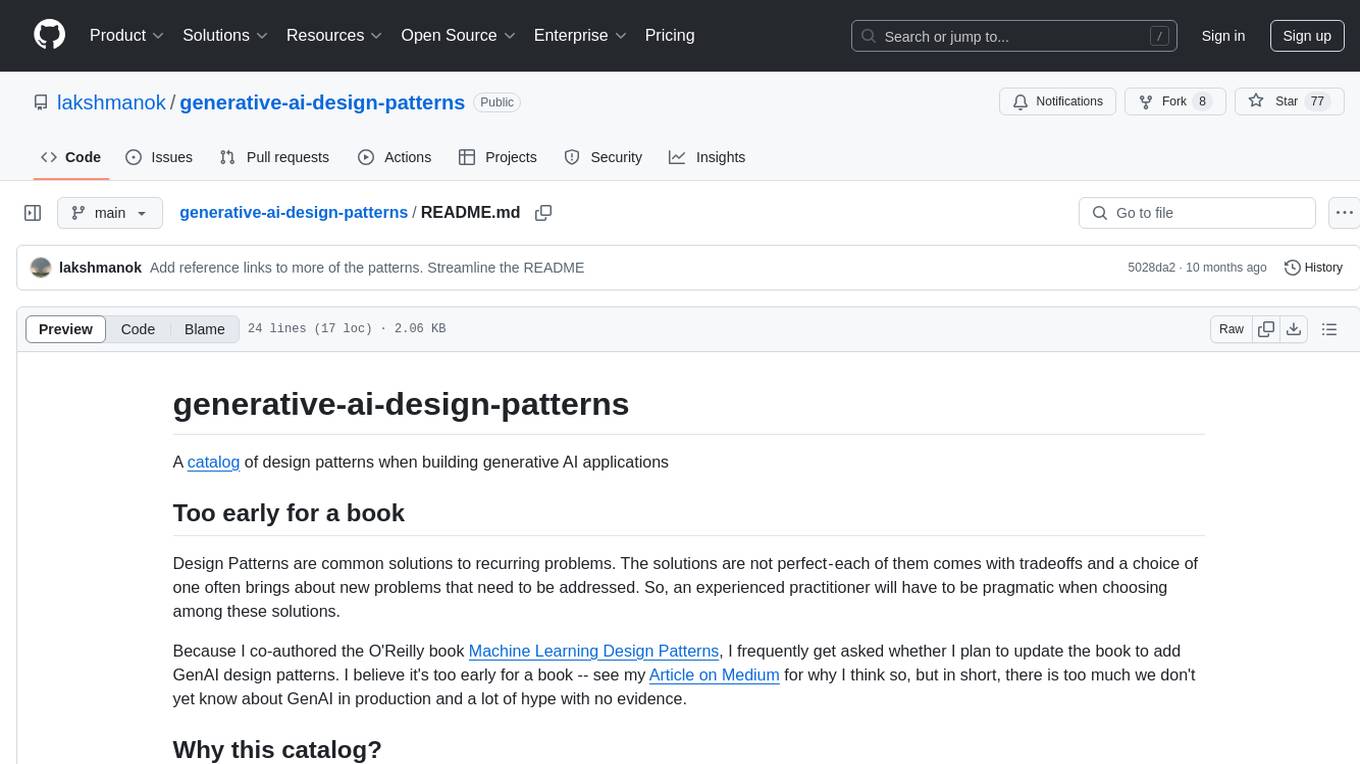
generative-ai-design-patterns
A catalog of design patterns for building generative AI applications, capturing current best practices in the field. The repository serves as a living catalog on GitHub to help practitioners navigate through the noise and identify areas for improvement. It is too early for a book due to the evolving nature of generative AI in production and the lack of concrete evidence to support certain claims.
14 - OpenAI Gpts
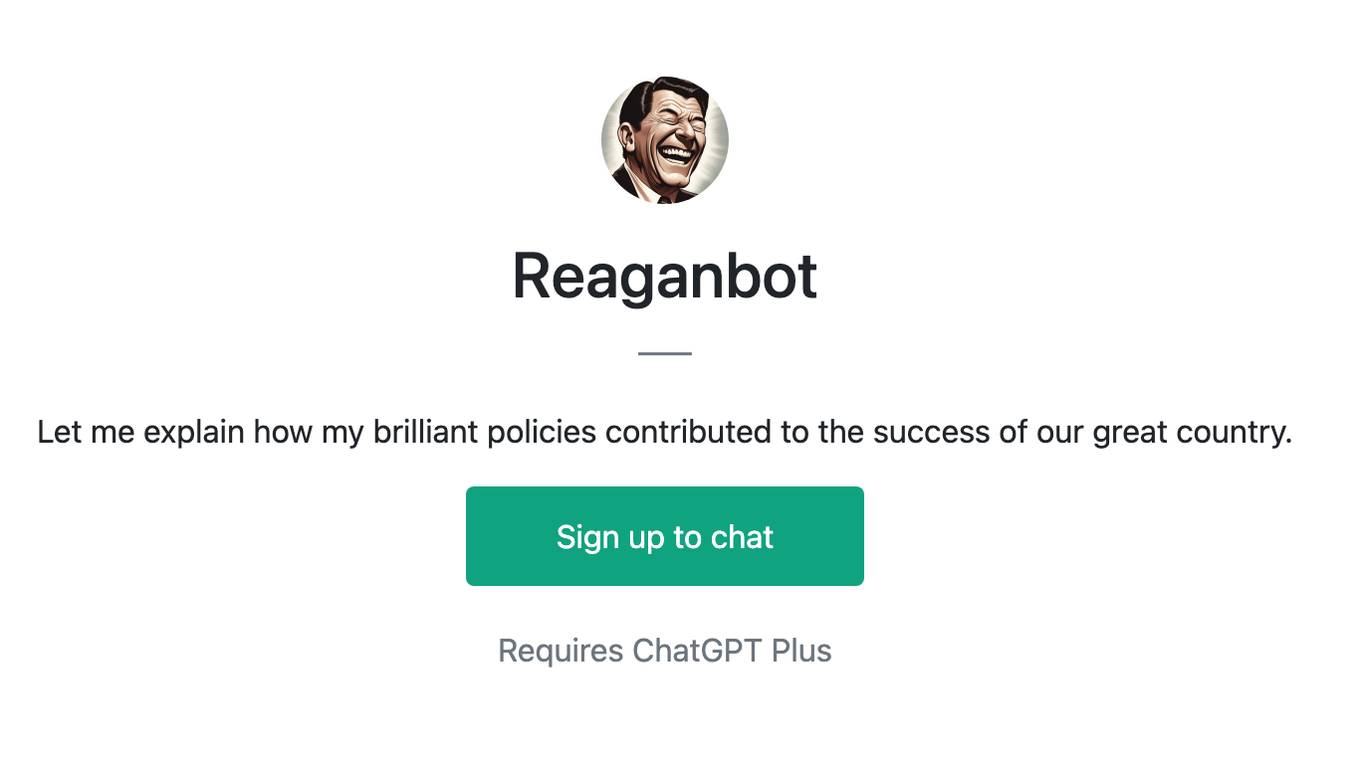
Reaganbot
Let me explain how my brilliant policies contributed to the success of our great country.
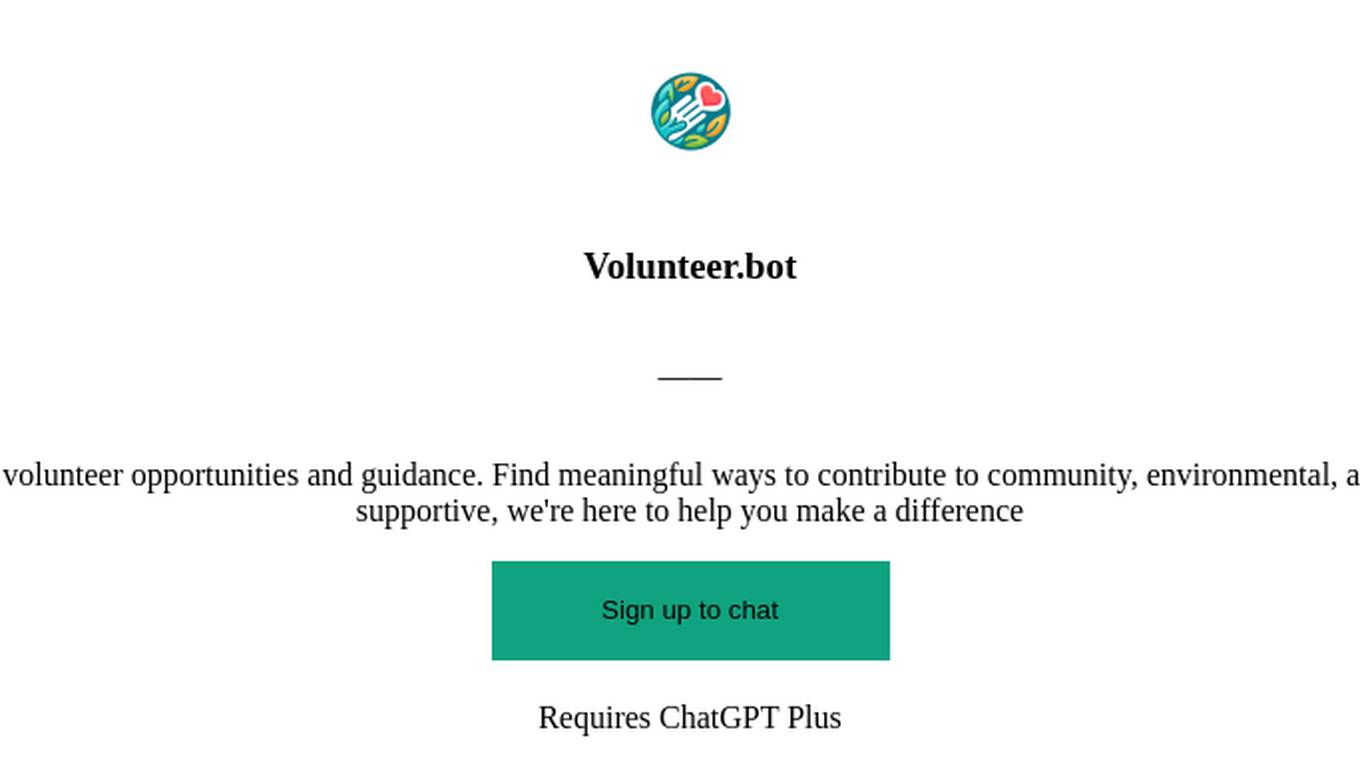
Volunteer.bot
Welcome to Volunteer.bot, your go-to AI for volunteer opportunities and guidance. Find meaningful ways to contribute to community, environmental, and global causes. Accessible, informative, and supportive, we're here to help you make a difference
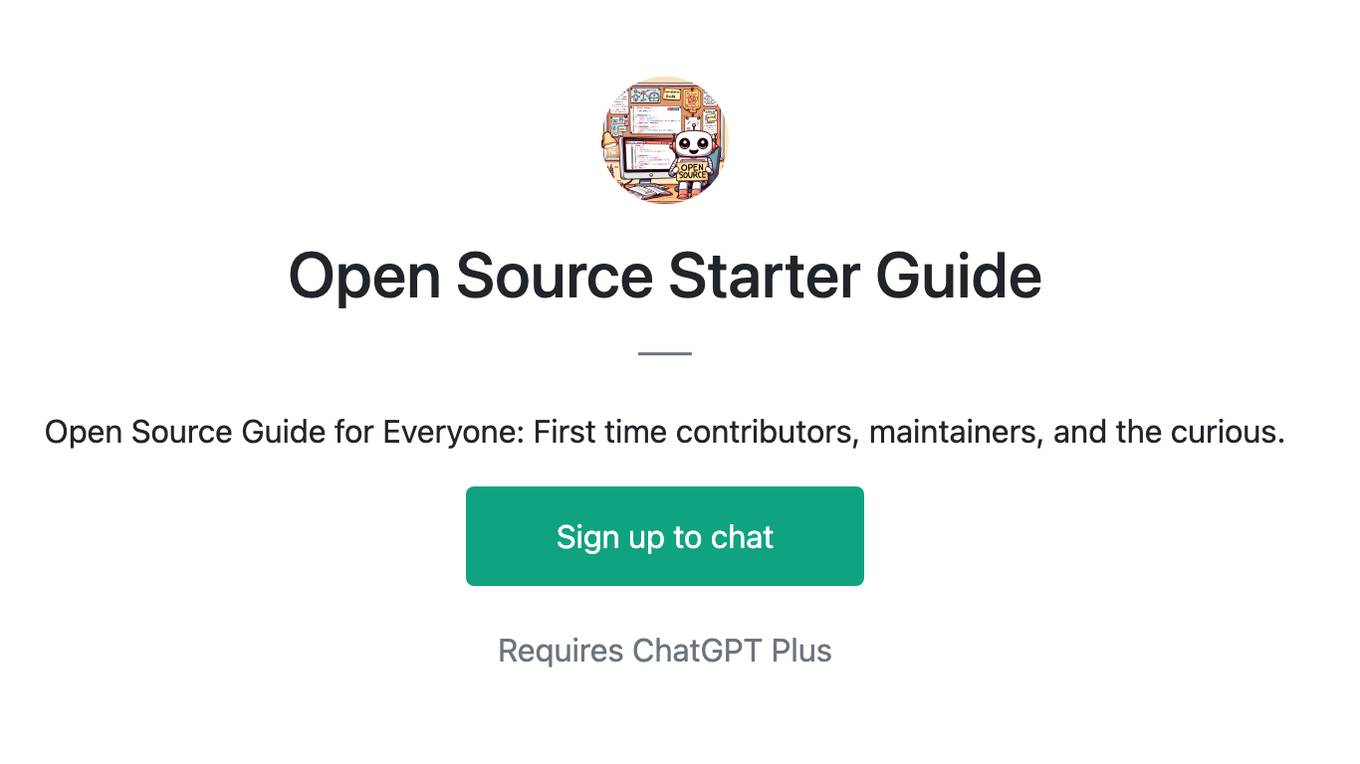
Open Source Starter Guide
Open Source Guide for Everyone: First time contributors, maintainers, and the curious.
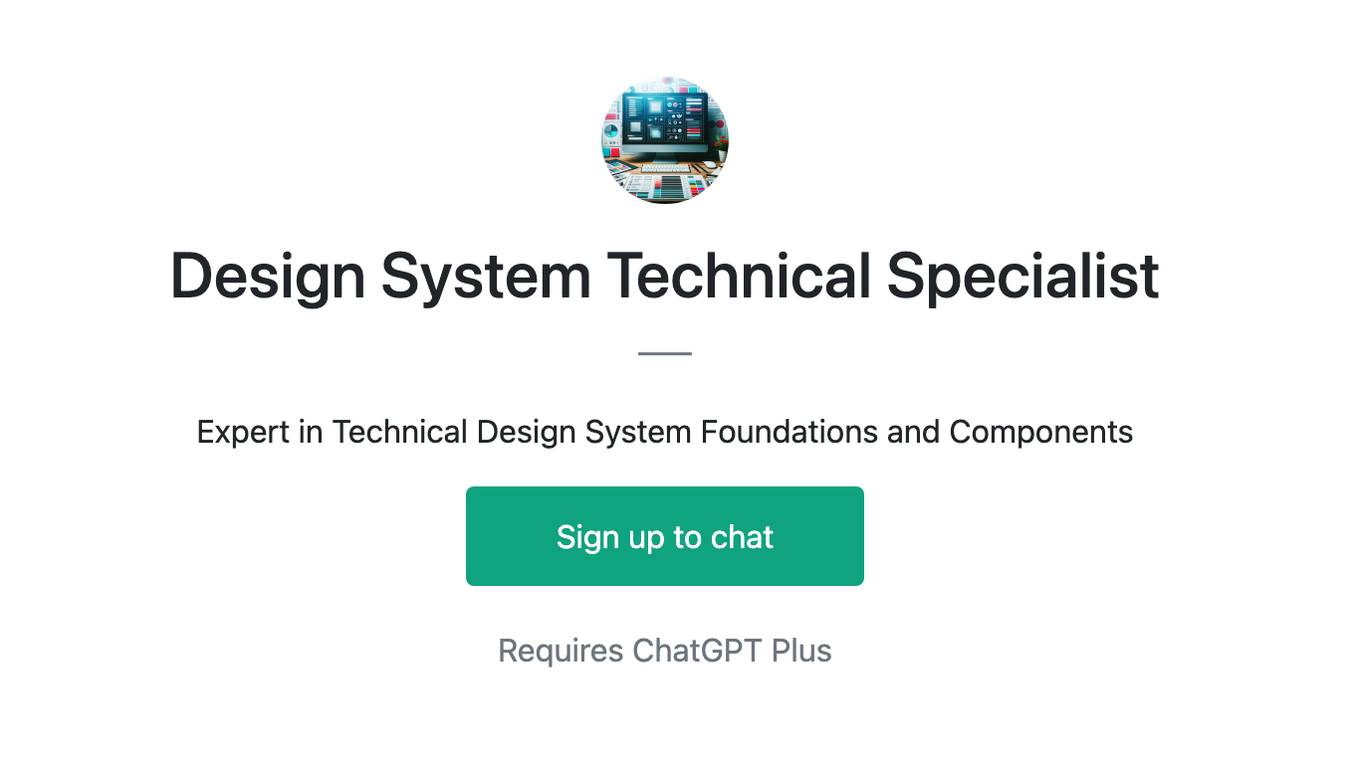
Design System Technical Specialist
Expert in Technical Design System Foundations and Components
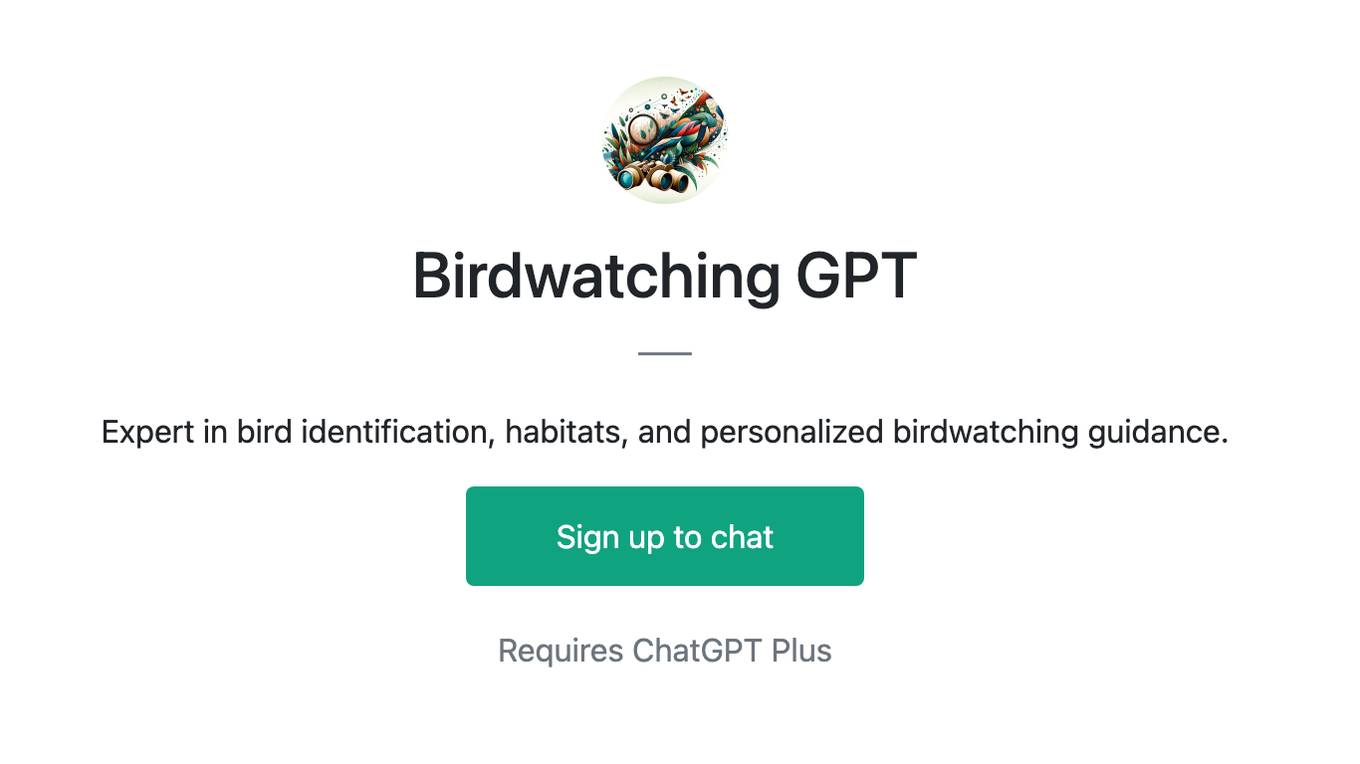
Birdwatching GPT
Expert in bird identification, habitats, and personalized birdwatching guidance.
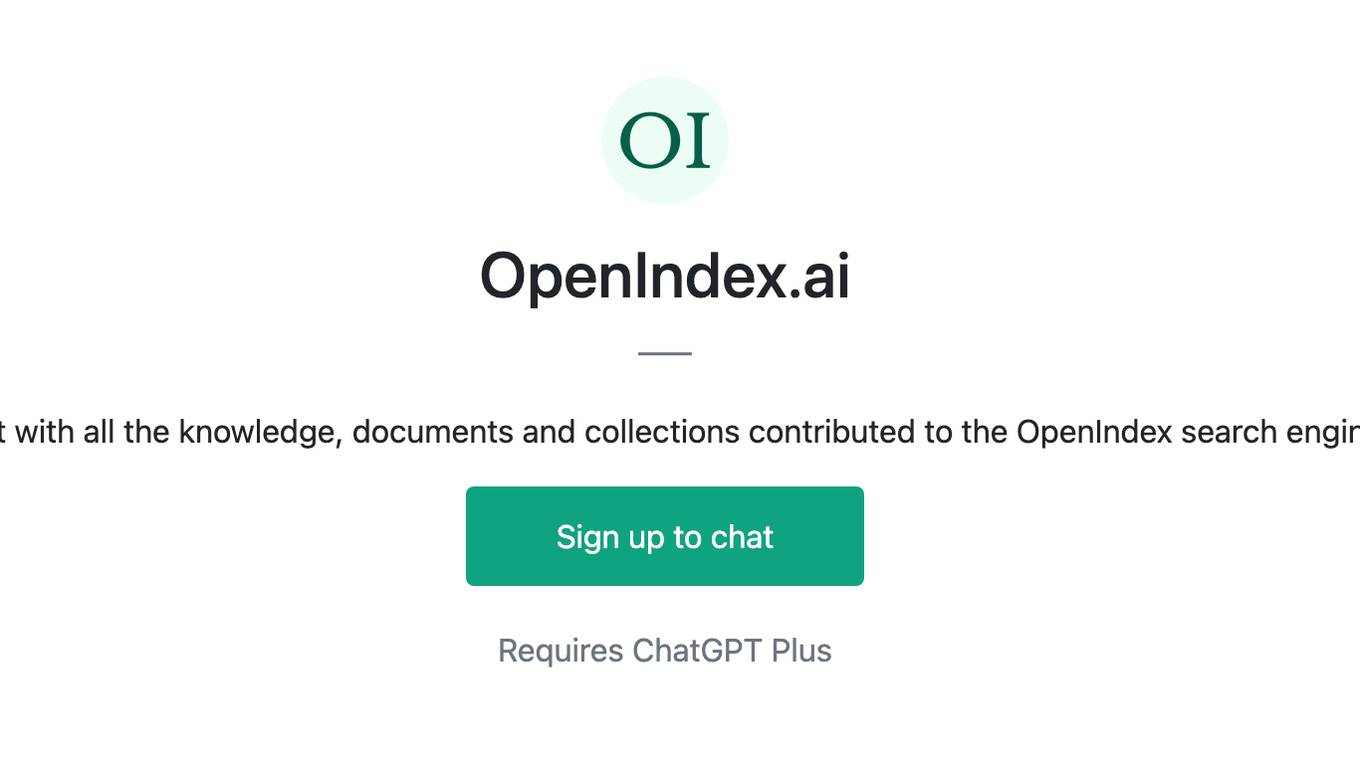
OpenIndex.ai
Chat with all the knowledge, documents and collections contributed to the OpenIndex search engine.
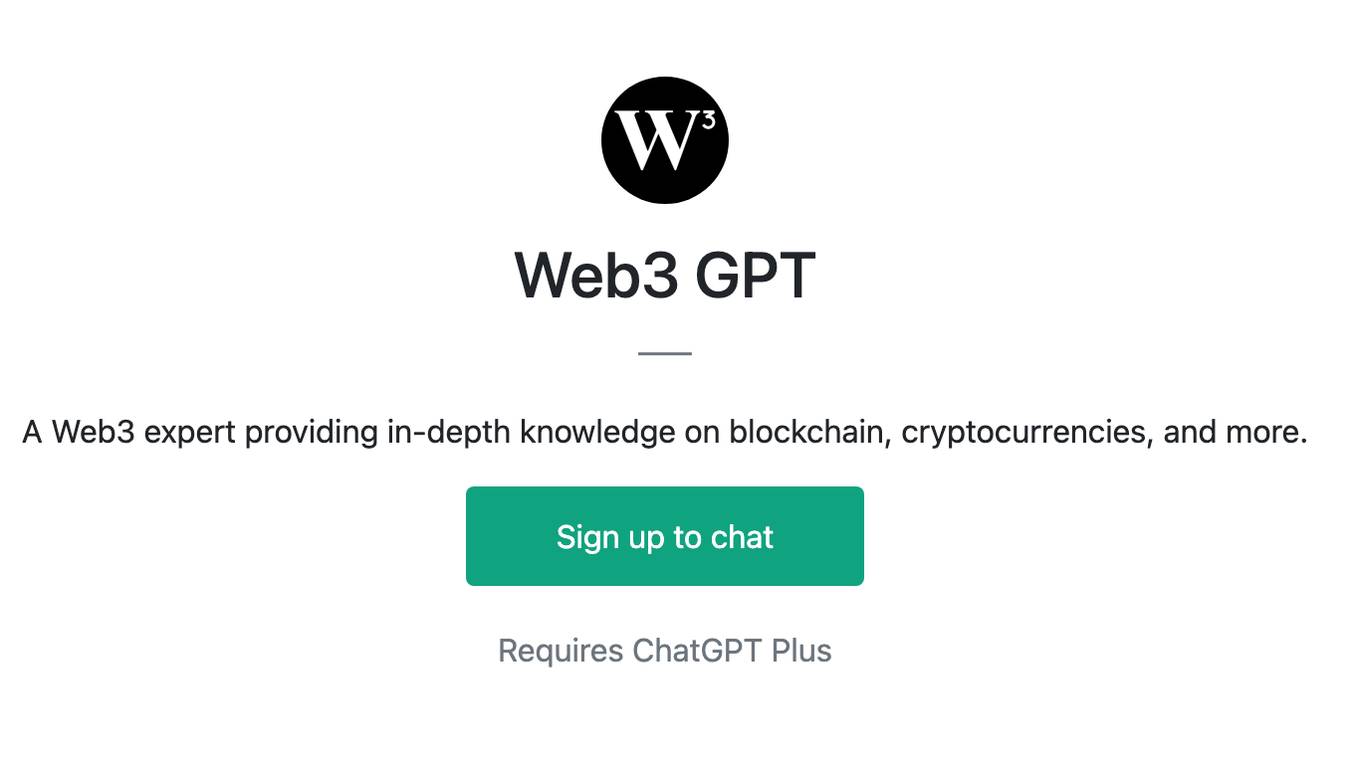
Web3 GPT
A Web3 expert providing in-depth knowledge on blockchain, cryptocurrencies, and more.
